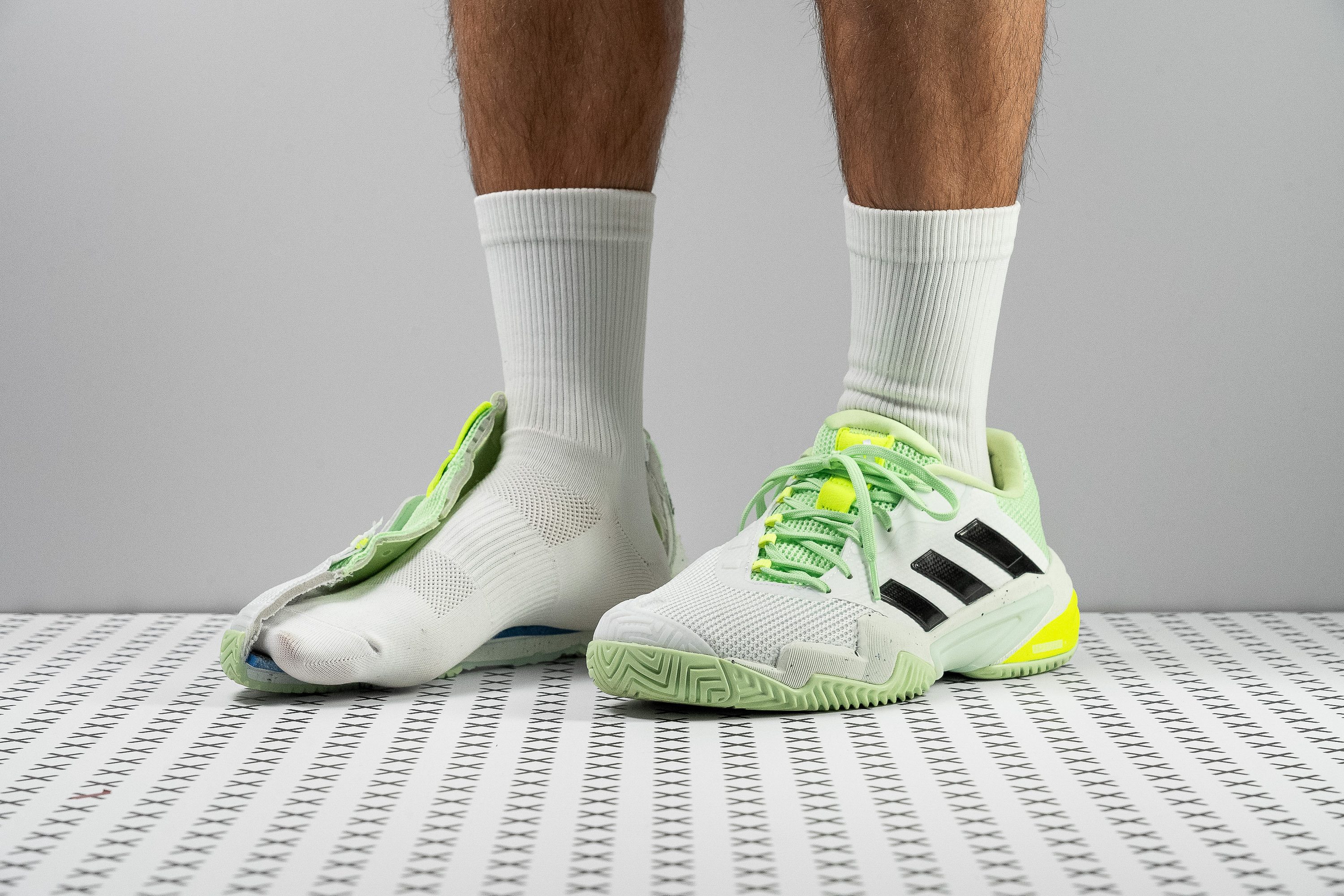Our verdict
- Top pick in best tennis shoes
- Top pick in best plantar fasciitis tennis shoes
Pros
- Exceptional stability and arch support
- Wide and steady platform
- Hard-wearing outsole with a 6-month guarantee
- Fantastic outsole grip
- Sufficient impact protection
- Great court feel
- Highly secure foothold and lockdown
- Outsole grips and slides well
Cons
- Upper is not the most durable
- Cushioning lacks bounce and responsiveness
Audience verdict
- Top 27% in tennis shoes
- Top 25% in Adidas tennis shoes
- Top 20% most popular tennis shoes
Comparison
The most similar tennis shoes compared
+ + Add a shoe | |||||
|---|---|---|---|---|---|
| Audience score | 88 Great! | 87 Great! | 91 Superb! | 82 Good! | |
| Price | £150 | £180 | £135 | £145 | |
| Shoe type | All CourtHard Court | All CourtHard Court | All CourtHard Court | All CourtHard Court | |
| Shock absorption | Moderate | Moderate | Low | Moderate | |
| Energy return | Low | Moderate | Low | Moderate | |
| Traction | High | High | Moderate | Moderate | |
| Construction | Stability | Stability | Stability | Stability | |
| Breathability | Moderate | Moderate | Moderate | Moderate | |
| Weight lab | 13.9 oz / 394g | 14.7 oz / 417g | 13.9 oz / 393g | 14.7 oz / 417g | |
| Drop lab | 11.3 mm | 8.9 mm | 10.9 mm | 7.5 mm | |
| Width / fit | Medium | Wide | Medium | Wide | |
| Toebox width | Medium | Narrow | Narrow | Medium | |
| Size | Slightly small | True to size | True to size | Half size small | |
| Midsole softness | Balanced | Balanced | Firm | Firm | |
| Stiffness | Moderate | Moderate | Moderate | Moderate | |
| Torsional rigidity | Stiff | Stiff | Stiff | Stiff | |
| Heel counter stiffness | Stiff | Stiff | Stiff | Moderate | |
| Midsole width - forefoot | Wide | Very wide | Average | Average | |
| Midsole width - heel | Wide | Wide | Average | Average | |
| Outsole durability | Decent | Good | Good | Good | |
| Heel padding durability | Decent | Decent | Bad | Decent | |
| Heel stack lab | 28.4 mm | 30.8 mm | 32.5 mm | 30.0 mm | |
| Forefoot | 17.1 mm | 21.9 mm | 21.6 mm | 22.5 mm | |
| Insole thickness | Thick | Average | Average | Average | |
| Removable insole | ✓ | ✓ | ✓ | ✓ | |
| Heel tab | Extended heel collar | None | None | None | |
| Toebox durability | Decent | Good | Good | Decent | |
| Outsole hardness | Average | Hard | Average | Average | |
| Outsole thickness | Very thin | Average | Average | Average | |
| Ranking | #11 Top 27% | #15 Top 38% | #3 Top 8% | #25 Bottom 40% | |
| Popularity | #8 Top 20% | #6 Top 15% | #1 Top 3% | #18 Top 43% |
Who should buy
We think that the Adidas Barricade 13 is a must to consider if:
- you are a seasoned tennis player looking for a highly stable shoe
- you expect a super grippy and hard-wearing shoe
- you want premium comfort and quality
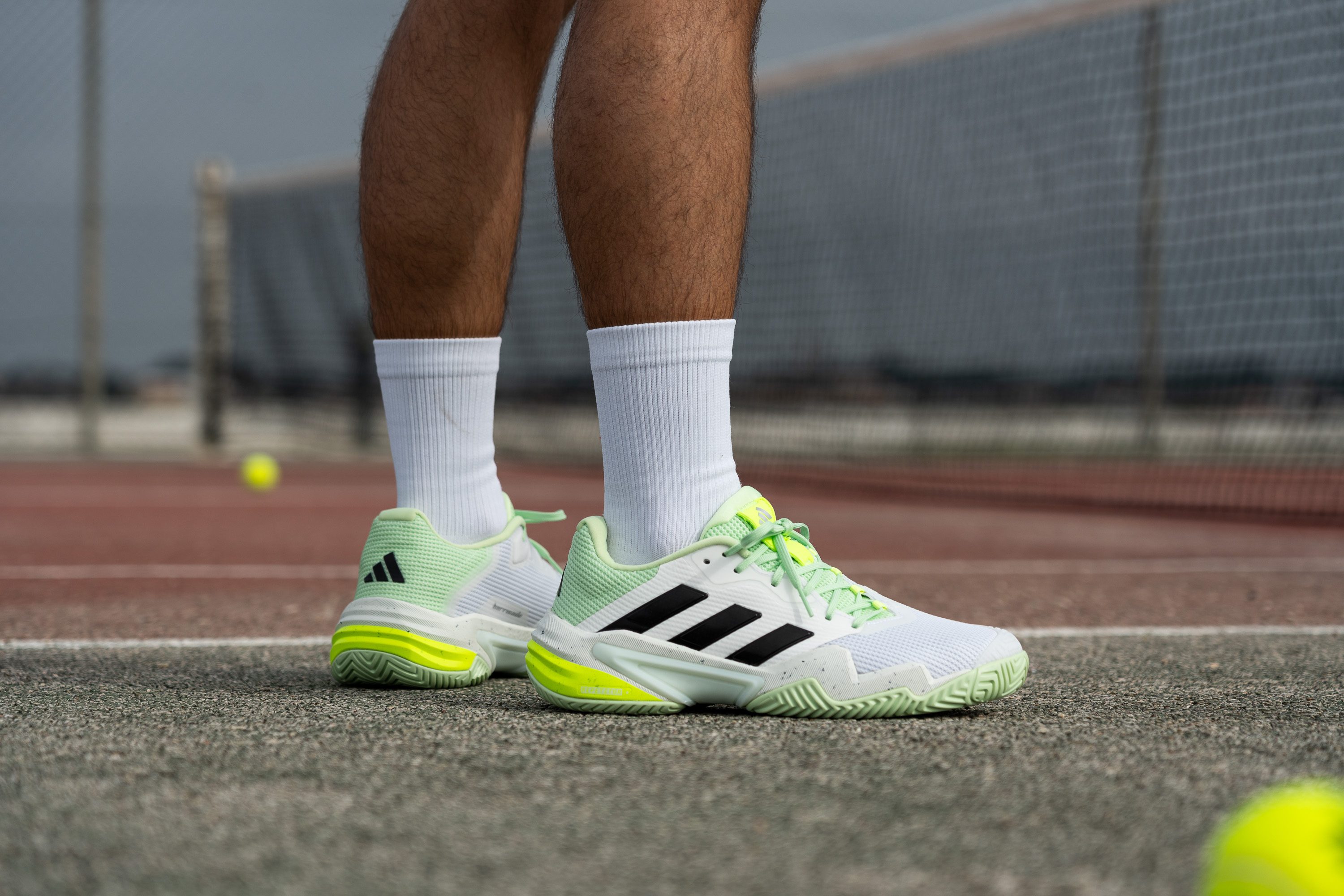
Who should NOT buy
We found that the Repetitor+ foam in the Barricade 13 lacks a bit of bounce. If you prefer a more responsive type of cushioning, we can recommend the Nike Zoom GP Challenge 1.
And if you burn through a pair of tennis shoes within a couple of weeks, the more reinforced ASICS Gel Resolution 9 might be a better option.
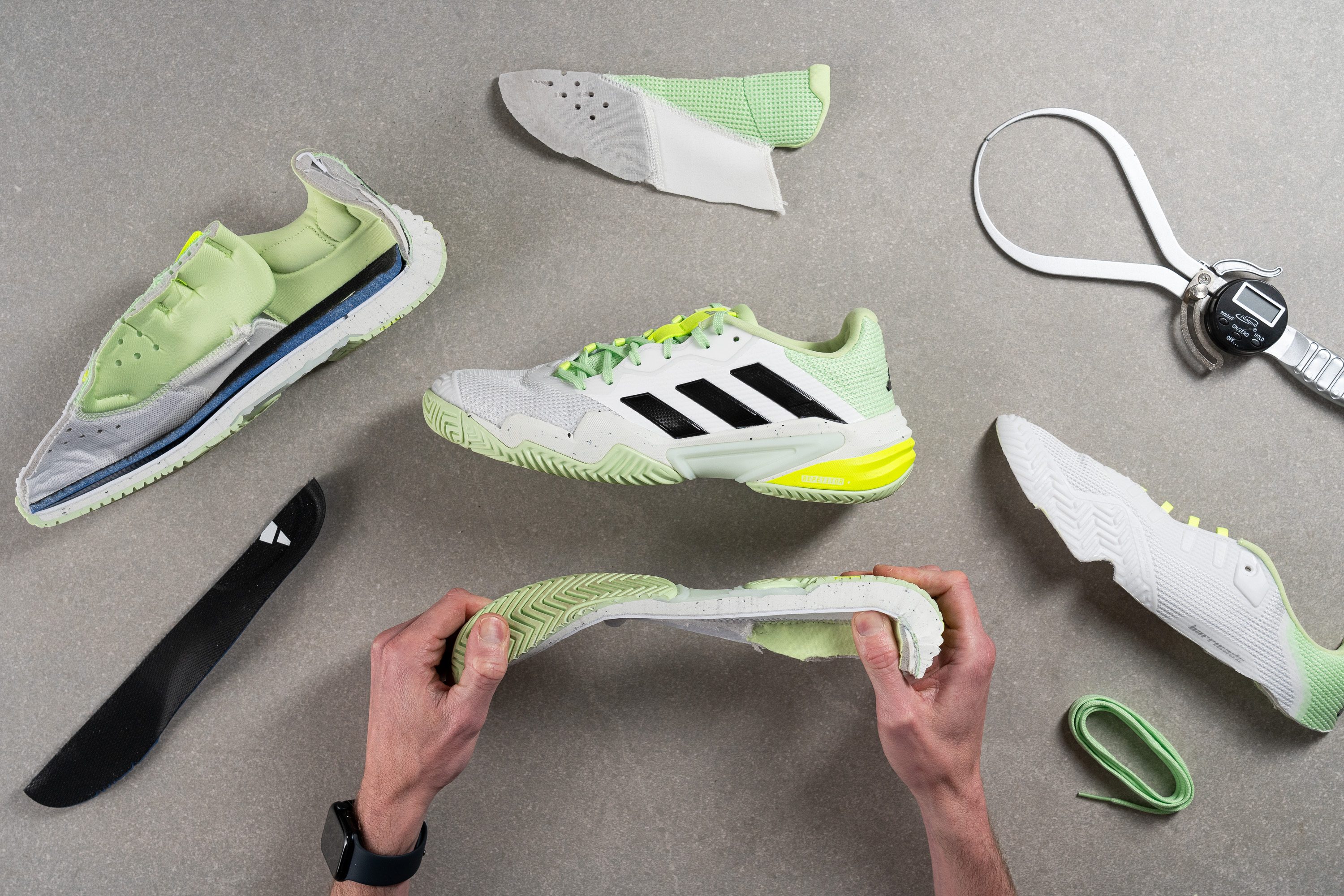
Cushioning
Shock absorption
The Adidas Barricade 13 is not the most abundantly cushioned tennis shoe but it offers enough impact protection for hard landings.
Measuring its shock absorption in both the heel (102 SA) and the forefoot (56 SA), the numbers turned out to be on par with the category average.
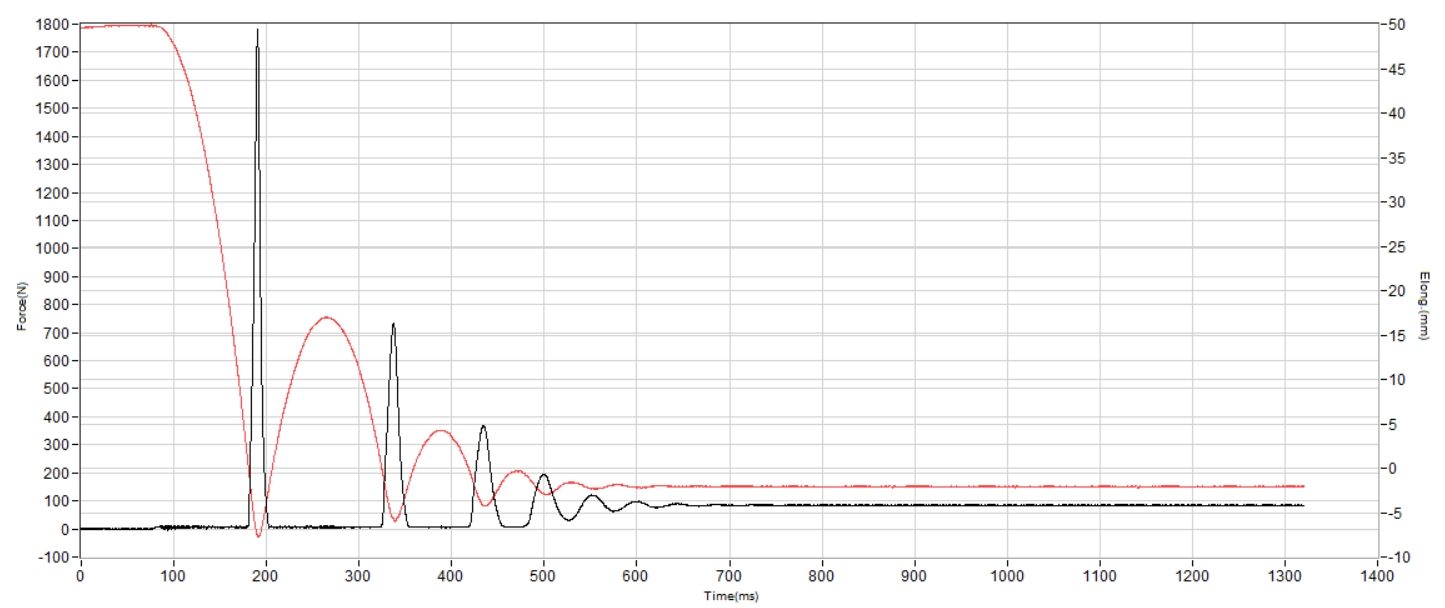
| Barricade 13 | 102 SA |
| Average | 99 SA |
Energy return
However, this Adidas shoe's low-rebound characteristics make it feel even more grounded than its stack height might suggest.
The shoe's Repetitor+ foam returned a subpar energy return of 42.9% in the heel and a significantly lower-than-average measurement of 39.6% in the forefoot. There is hardly any propulsion in the Barricade 13 which confirms its suitability for the baseline rallies.
| Barricade 13 | 42.9% |
| Average | 48.3% |
Heel stack
We found the Barricade 13 to be sufficiently cushioned with a heel stack of 28.4 mm. This is an average stack of tennis shoes.
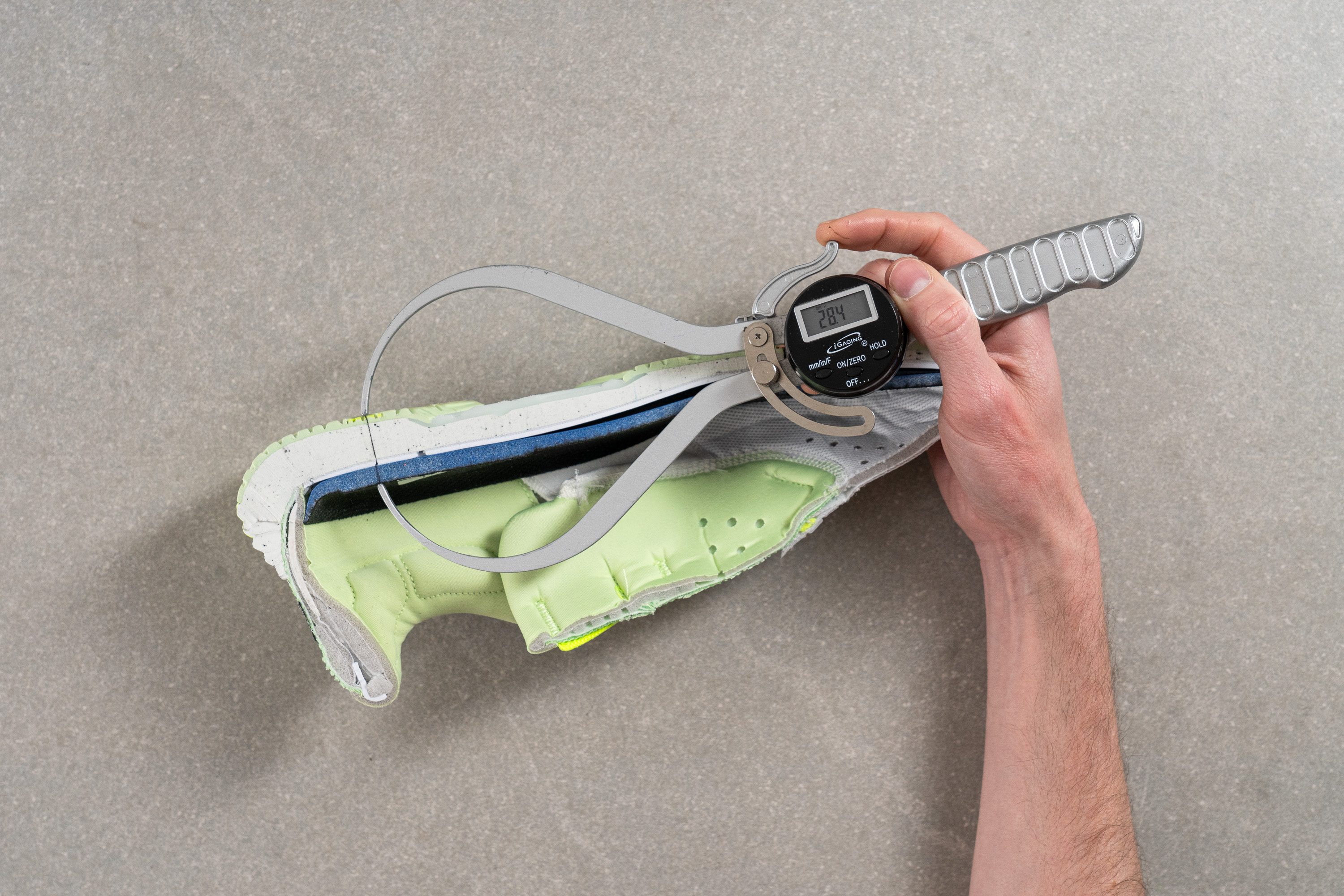
| Barricade 13 | 28.4 mm |
| Average | 29.3 mm |
Forefoot stack
In the forefoot, the Barricade 13 is surprisingly lower than average at 17.1 mm. But perhaps it shouldn't come as a surprise given how grounded this Adidas shoe feels.
The fans of sensitive ground feel would appreciate this setup for sure.
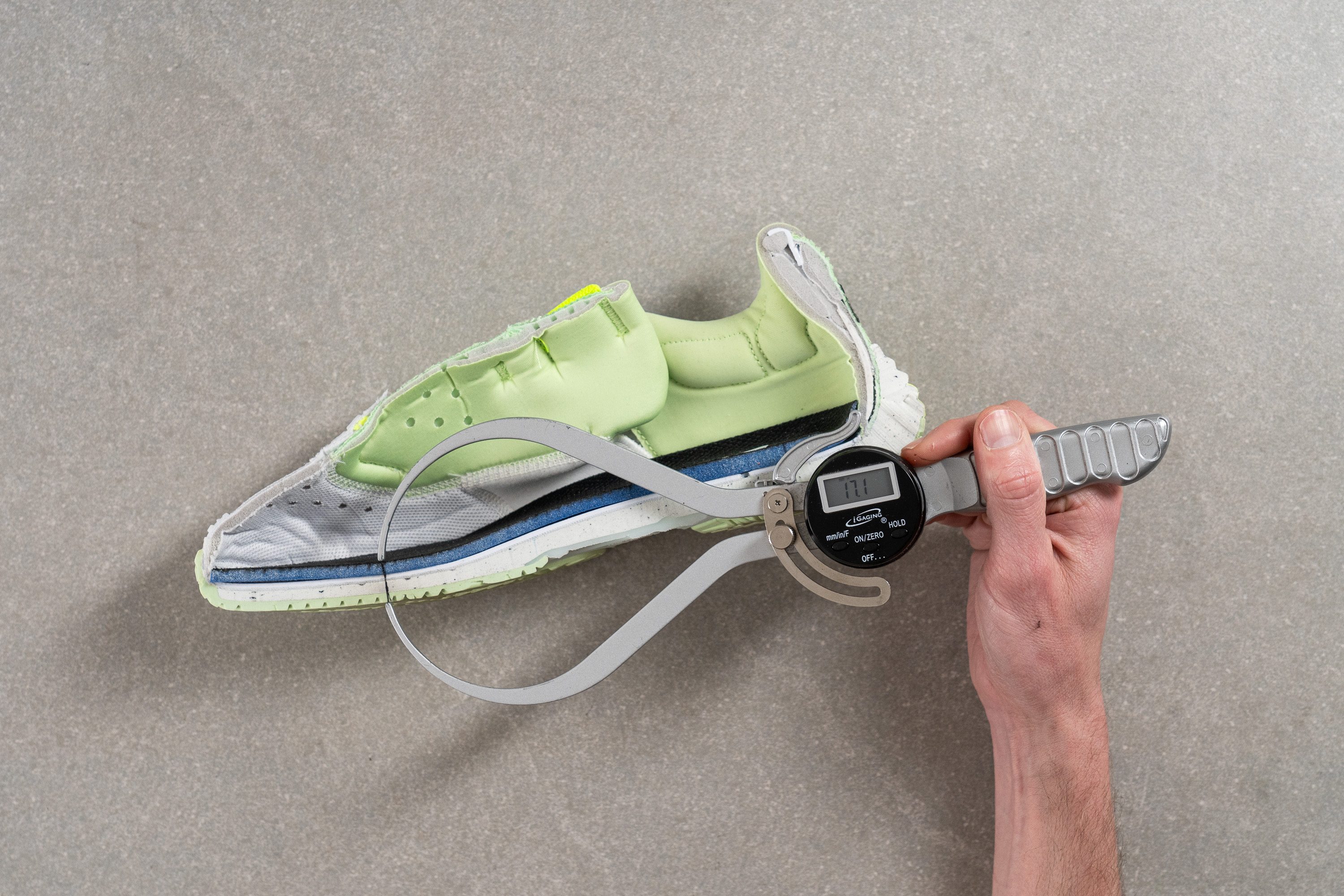
| Barricade 13 | 17.1 mm |
| Average | 19.4 mm |
Drop
The heel-to-toe difference in this Adidas tennis shoe is slightly taller than average at 11.3 mm.
Even though the drop is not that dramatic, it could be the reason why we feel a bit of toe jamming in the first hours of playtesting the Barricade 13.
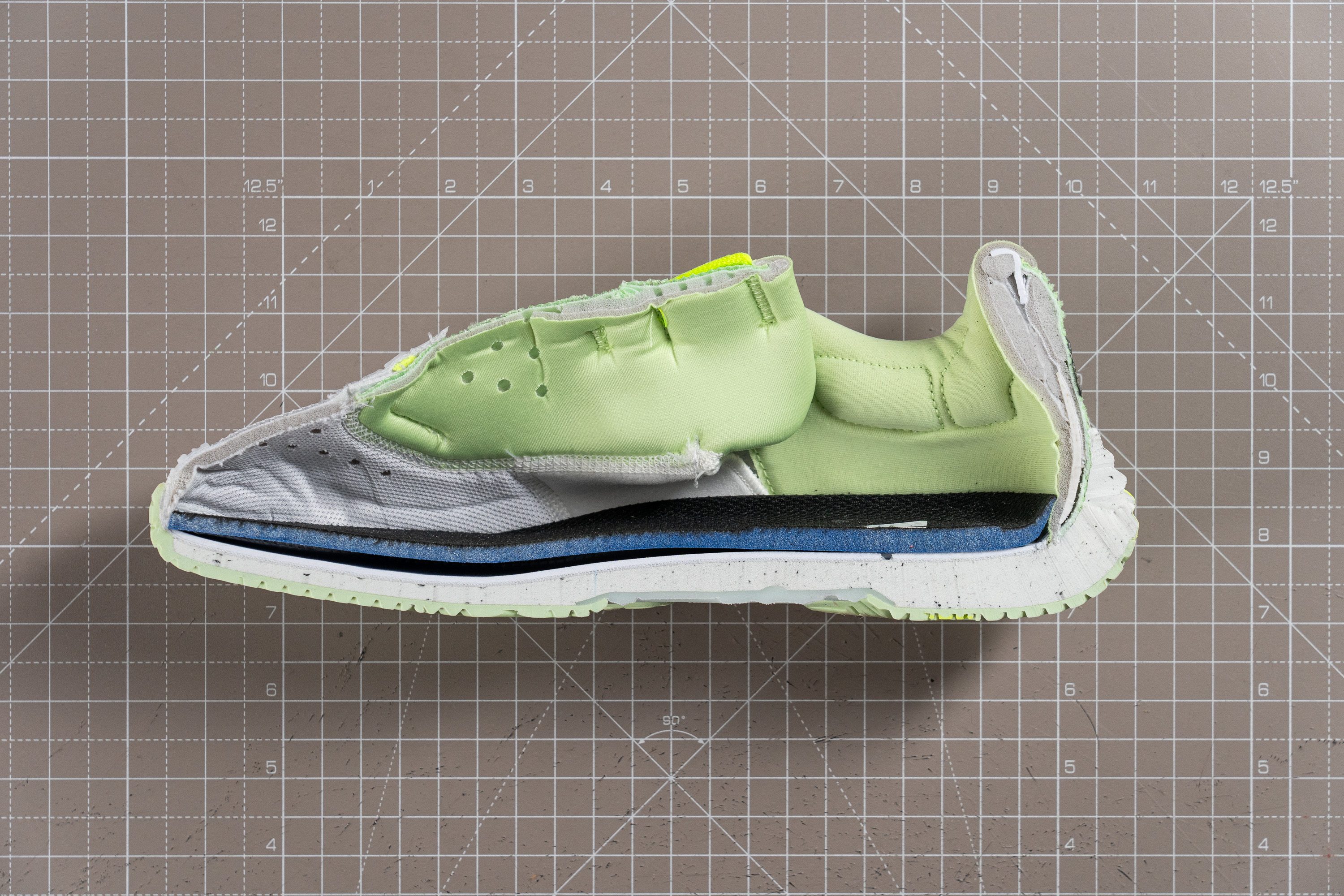
| Barricade 13 | 11.3 mm |
| Average | 9.9 mm |
Midsole softness
Adidas chose its newer Repetitor+ foam instead of the tried-and-true Bounce for the Barricade 13.
On its own, the Repetitor+ is slightly softer than average. Our durometer shows a reading of 26.1 HA which is 12% softer than average.
But keep in mind that this foam is incorporated into the sturdy carcass of the Torsion System which makes the overall experience firmer.
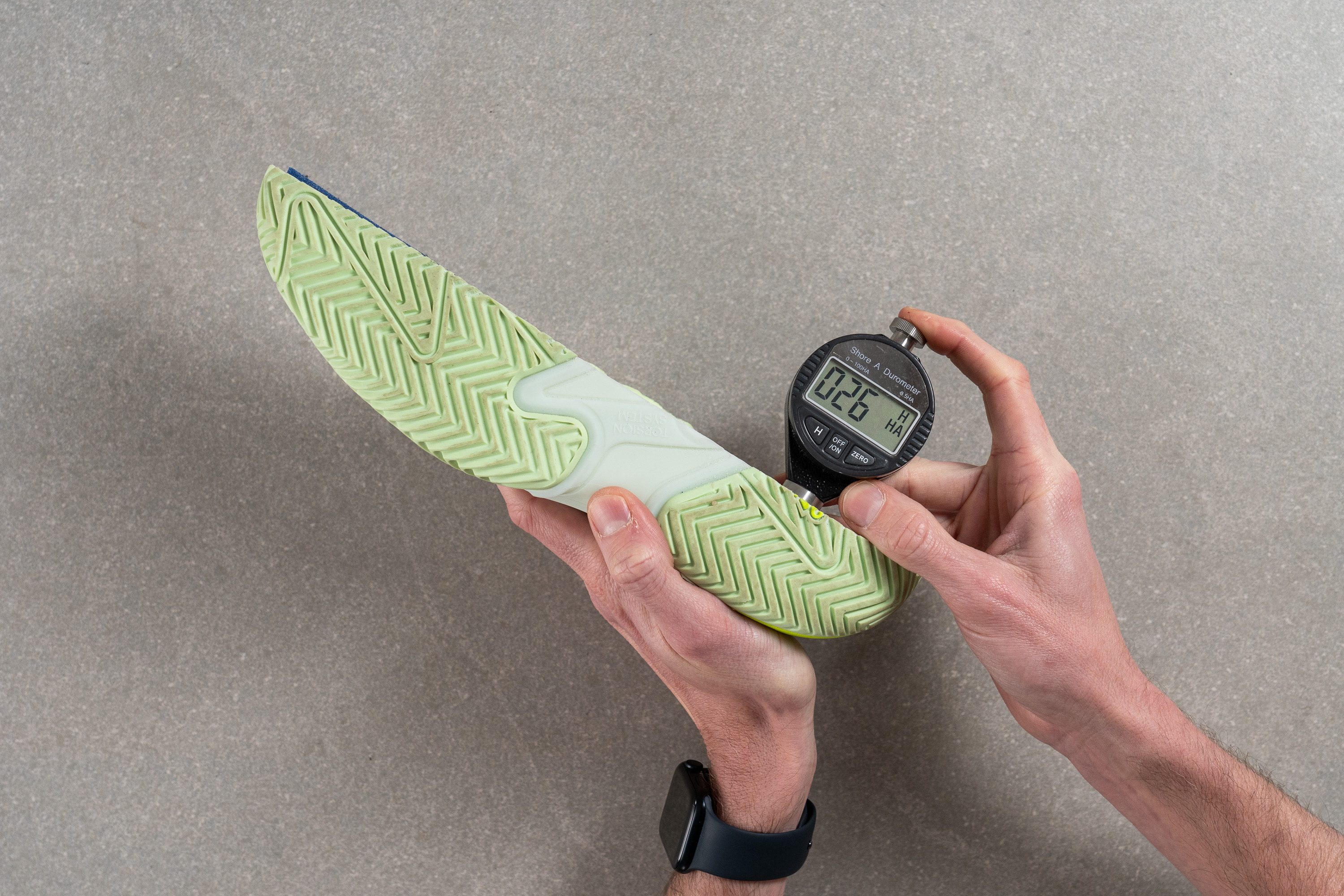
We should also mention that the Repetitor+ foam felt underwhelming in terms of responsiveness. It did make us feel more grounded but there was no joyful pop in it to keep us jumpy on the toes.
| Barricade 13 | 26.1 HA |
| Average | 28.2 HA |
Size and fit
Size
Adidas Barricade 13 fits slightly small (54 votes).
Internal length
| Barricade 13 | 272.2 mm |
| Average | 270.9 mm |
Width / Fit
The Adidas Barricade 13 treated our medium-sized feet to a comfortable and expected fit.
Measuring the widest part of the gel mould of the shoe's interiors confirmed our on-foot experience. With a calliper reading of 92.7 mm, it is on par with the average D medium tennis shoe.
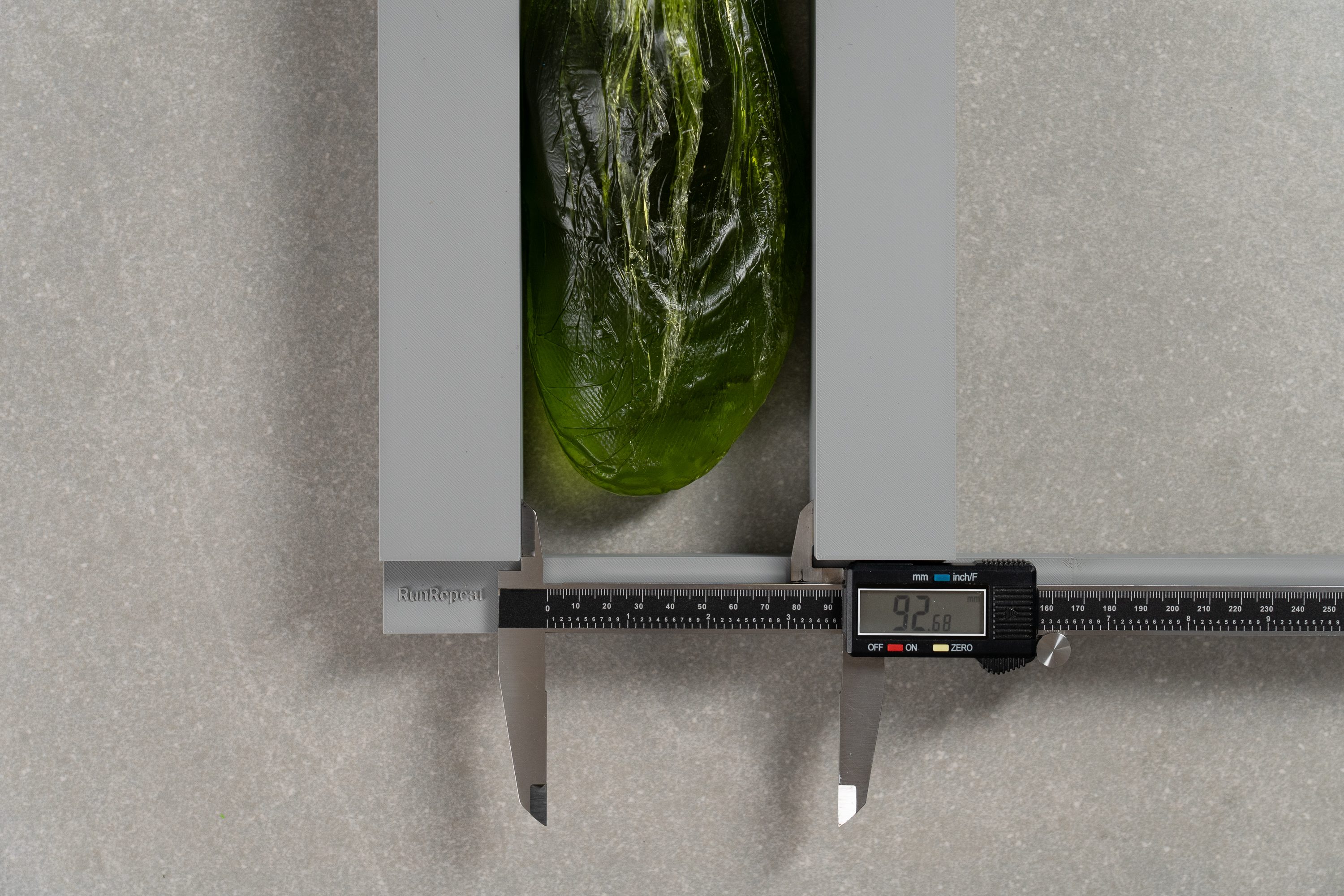
| Barricade 13 | 92.7 mm |
| Average | 92.9 mm |
Toebox width
The toebox also proved to be consistent with the category average. Its taper angle is barely noticeable and returned a standard width of 68.5 mm in the big toe area.
No worries about its stout toe-drag guard pressing on top of the toes.
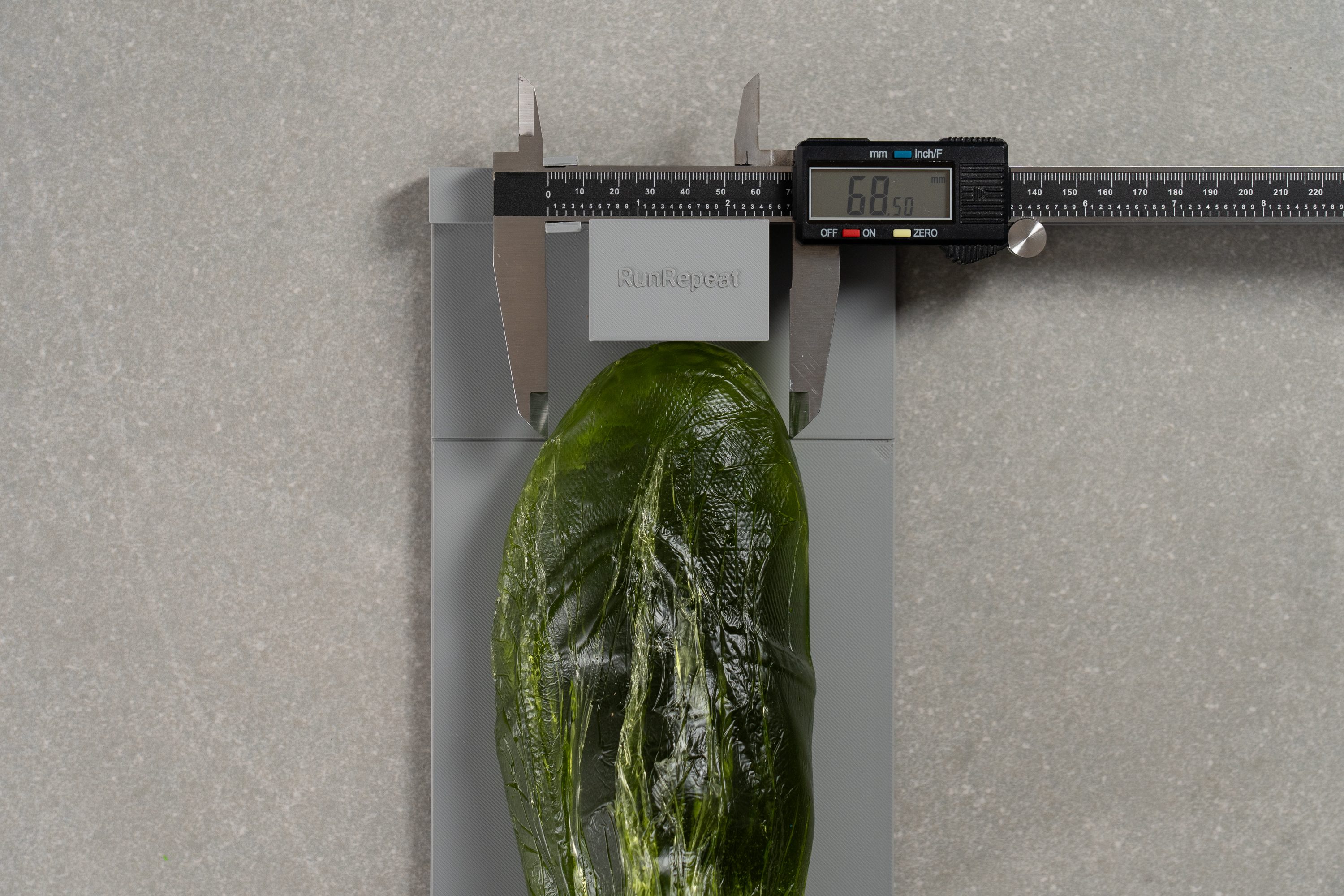
| Barricade 13 | 68.5 mm |
| Average | 69.3 mm |
Toebox height
The Barricade 13 is quite generous with its vertical toe space showing a toebox height of 26.1 mm.
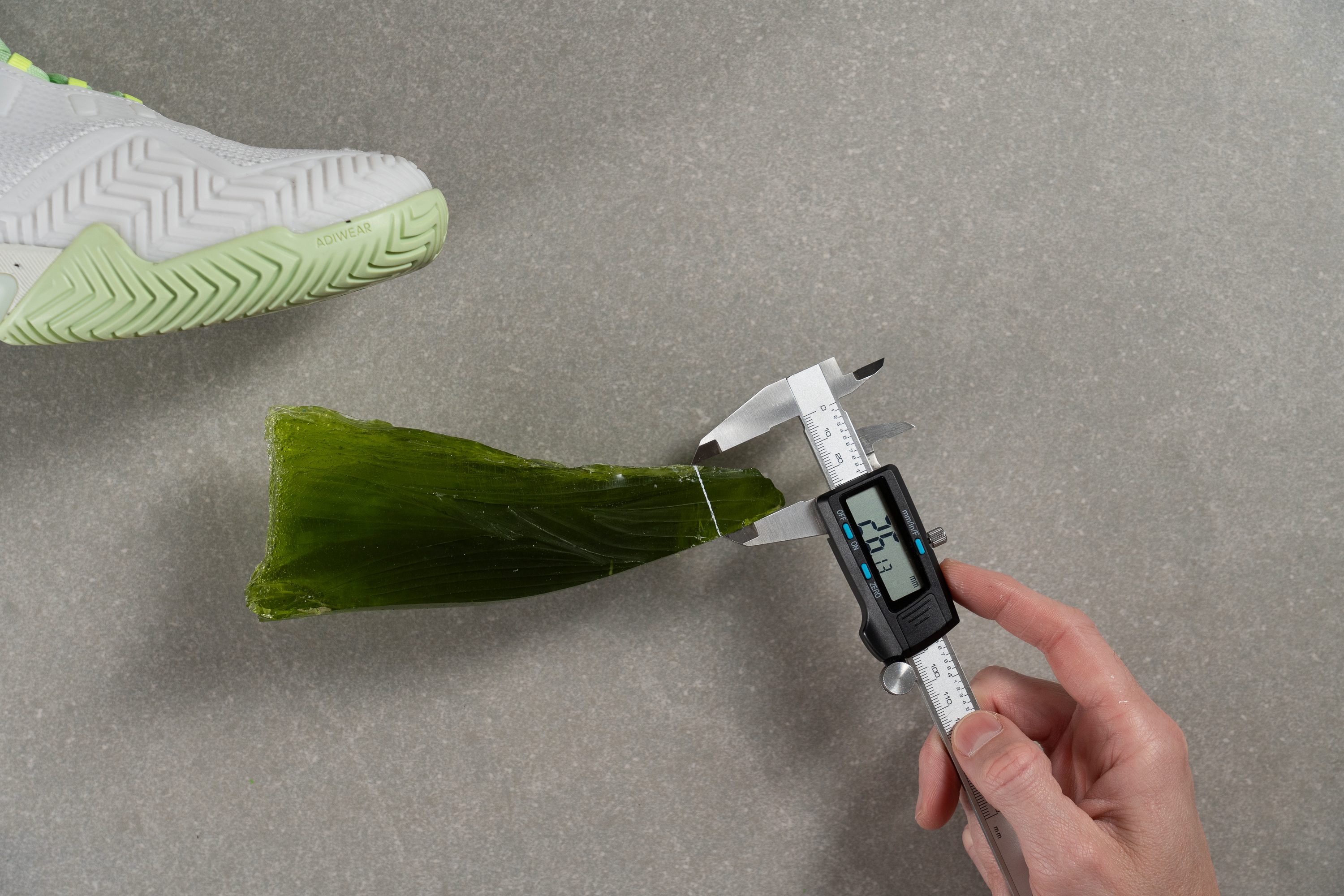
| Barricade 13 | 26.1 mm |
| Average | 25.0 mm |
Lockdown
If you've never tried a shoe with asymmetrical lacing before, give it a chance in the Barricade 13.
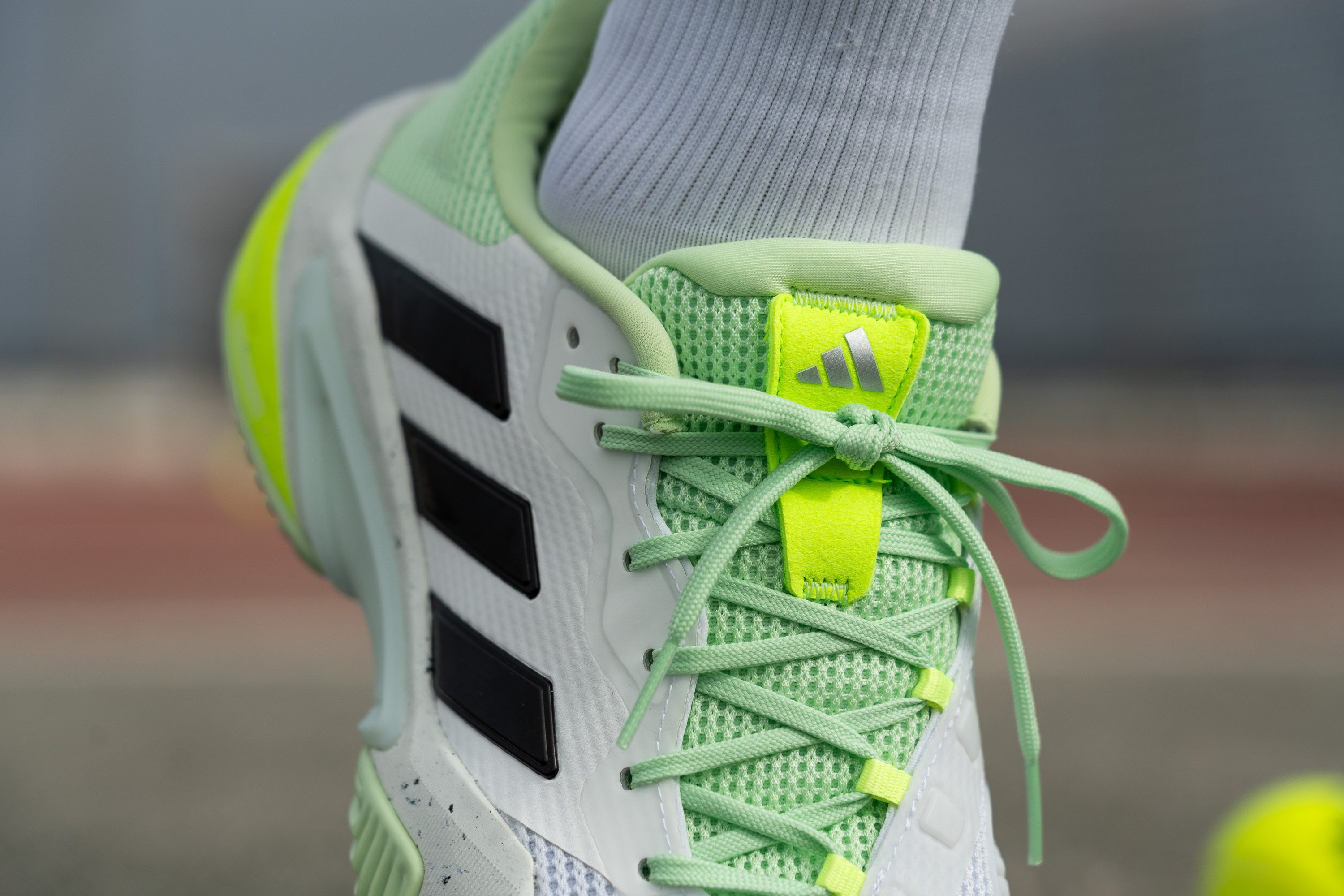
We weren't sure about it ourselves too but during the playtest, we actually felt the benefits it offers for sliding and performing quick cuts.
Plus, we never had to deal with tongue sliding!
Traction / Grip
As a premium tennis shoe, the Adidas Barricade 13 never disappointed us with its ability to grip the court.
The shoe mixes flat and sharp herringbone treads to provide an optimal balance of stopping power and sliding potential.
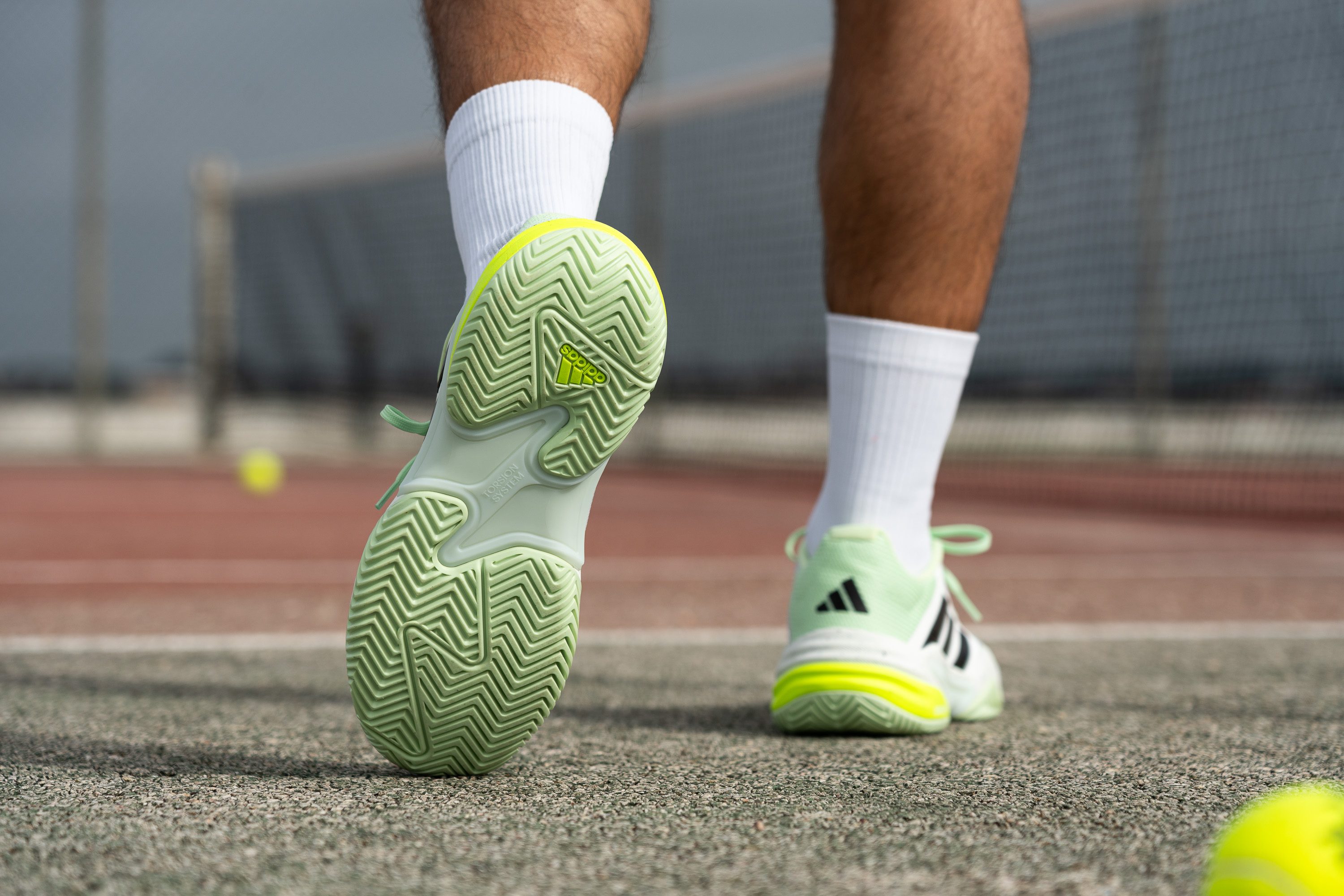
The outsole reveals its benefits straight from the box and doesn't require any breaking in.
Forefoot traction
As a premium tennis shoe, the Adidas Barricade 13 never disappointed us with its ability to grip the court.
Sliding the shoe's forefoot against cry concrete, we recorded an amazingly high coefficient of friction (0.90) which confirmed the shoe's glue-like traction on hard court.
And the best part is that the shoe's outsole reveals its benefits straight from the box and doesn't require any breaking in!
| Barricade 13 | 0.90 |
| Average | 0.74 |
Outsole design
The shoe mixes flat and sharp herringbone treads to provide an optimal balance of stopping power and sliding potential.

Flexibility / Stiffness
Despite its high level of torsional rigidity and stiff stabilising components, we found that the Adidas Barricade 13 is not much stiffer than the average tennis shoe.
Checking how much force it takes to bend it by 30 degrees, our flexing tester showed a medium-range reading of 16.7N. That's a fine balance of support and give for a stability-oriented shoe like the Barricade.
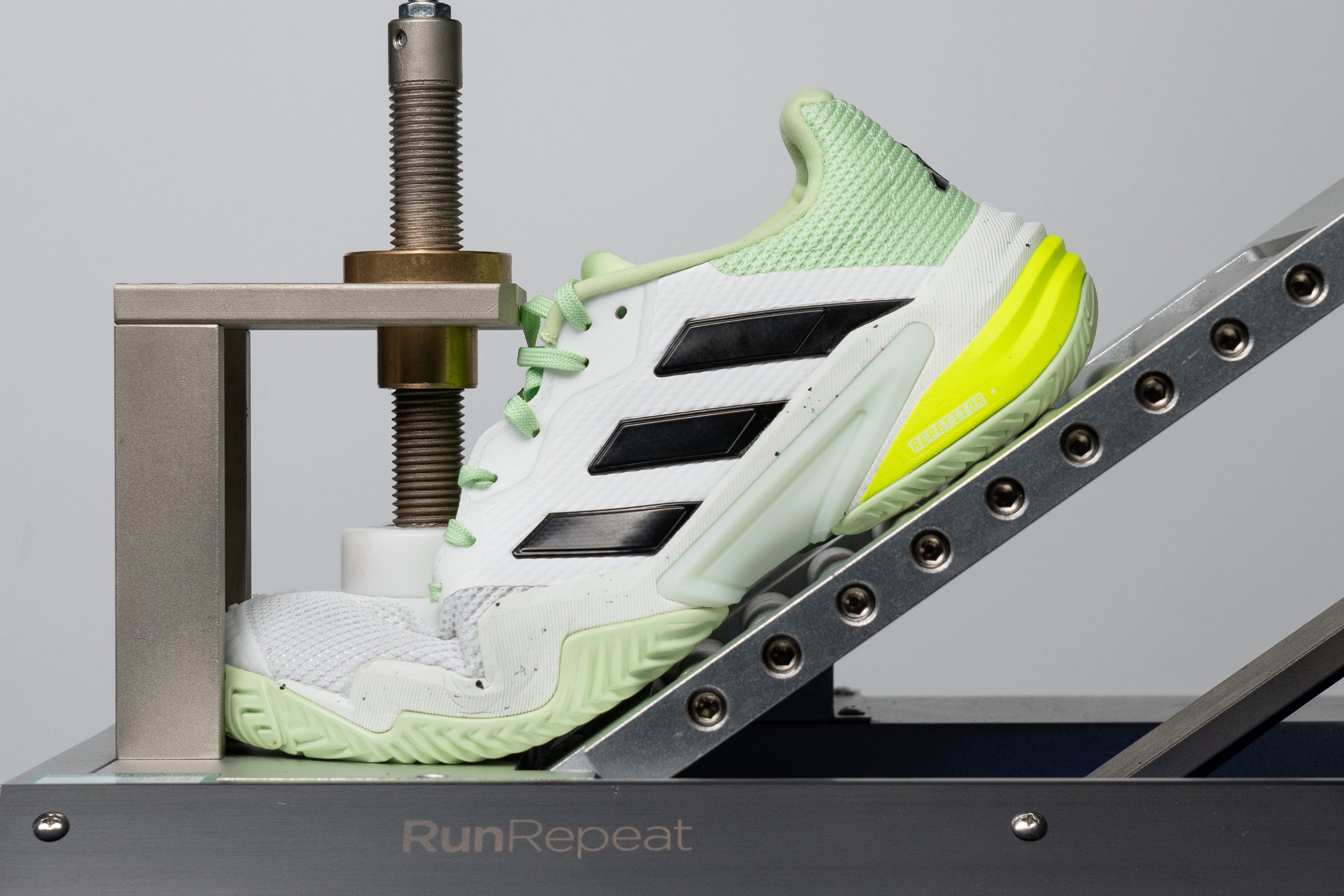
| Barricade 13 | 16.7N |
| Average | 16.7N |
Weight
Like most stability-oriented tennis shoes, the Adidas Barricade 13 sacrifices some lightness in exchange for better support.
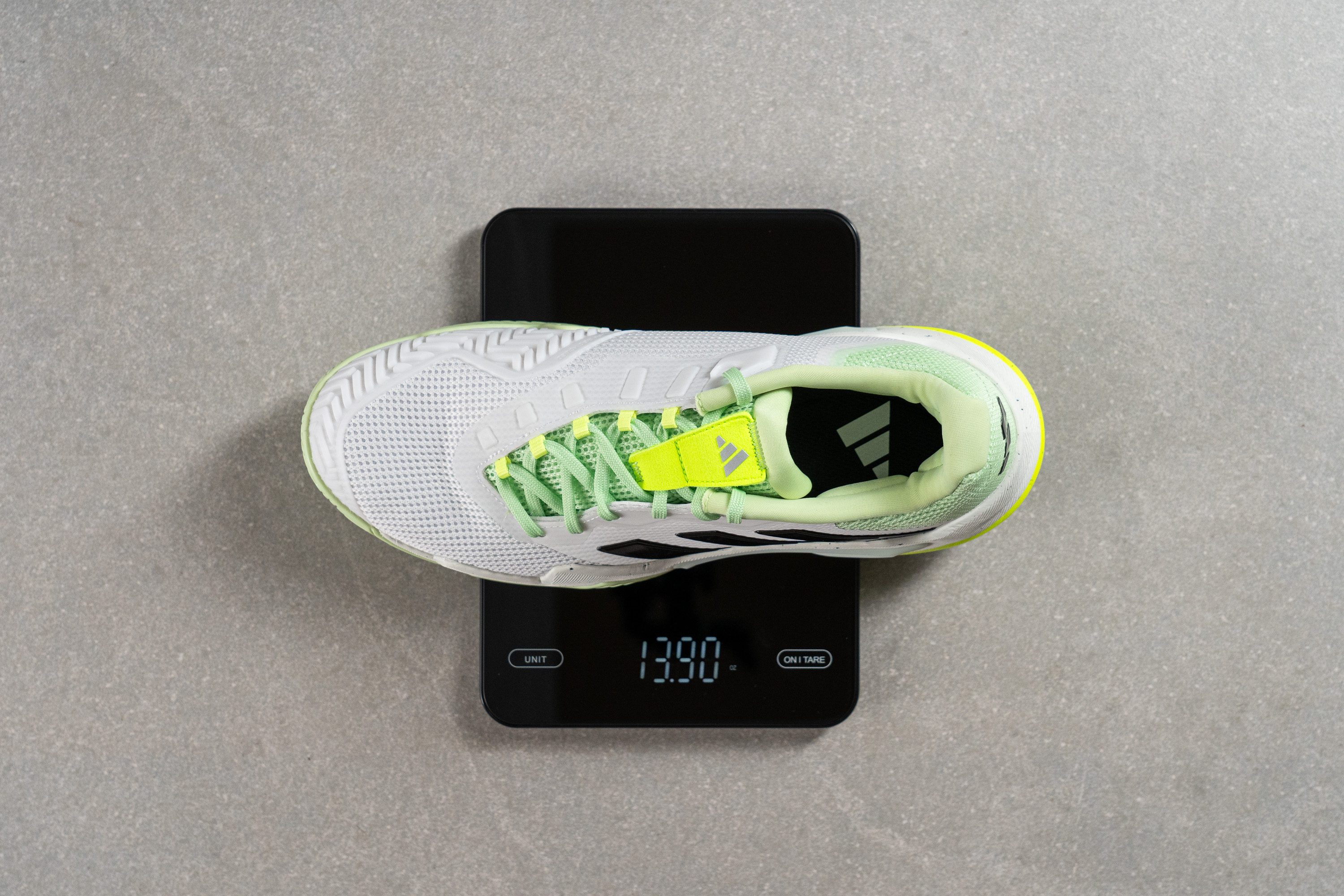
Weighing the shoe in a men's US size 9, our scale showed 13.9 oz (394g) which is an ounce heavier than the average tennis shoe.
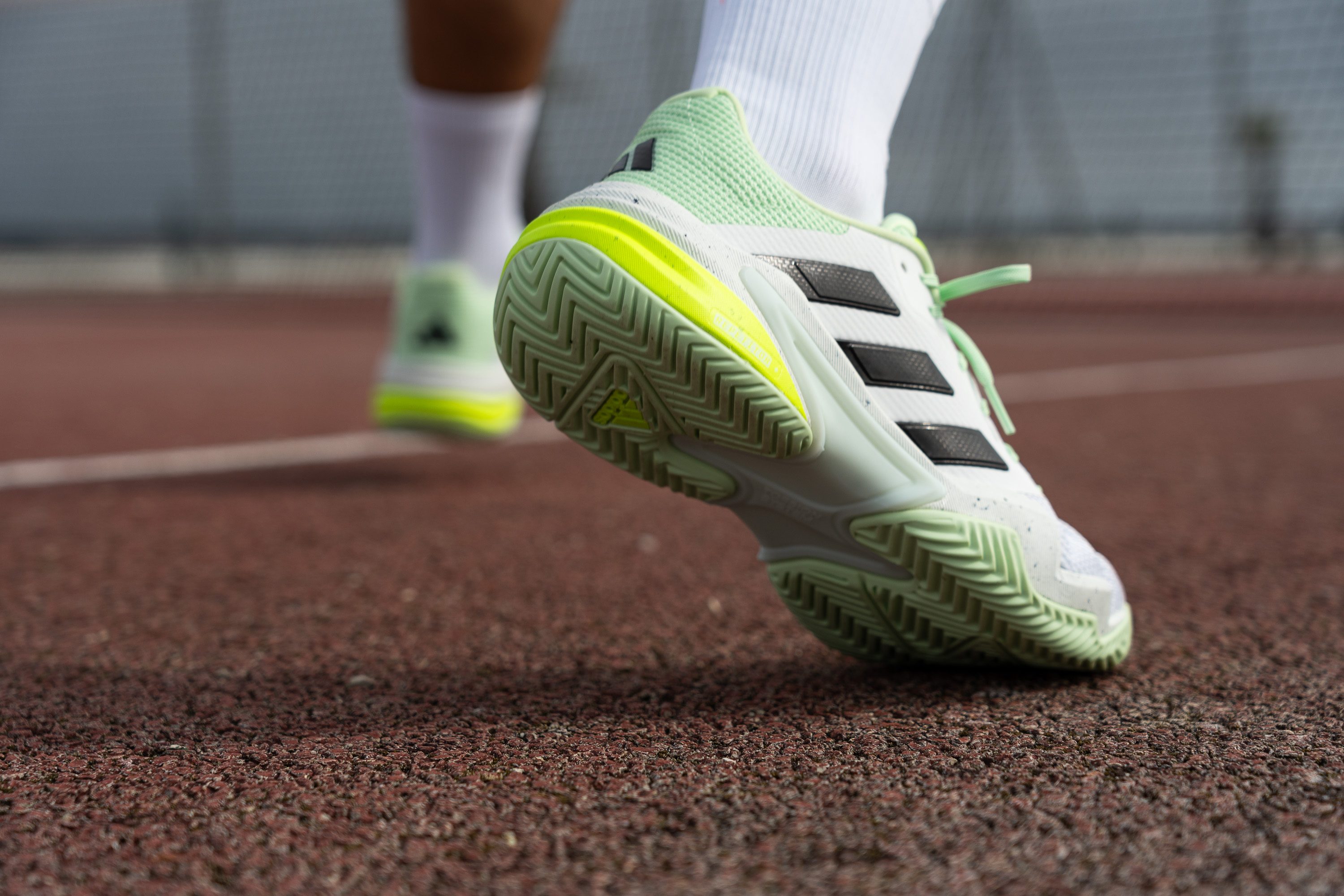
However, we never felt like the shoe was holding us back on the court. Its weight is on par with other stability shoes like the Resolution 9 (13.8 oz/392g) and is even lighter than the Nike GP Challenge 1.
| Barricade 13 | 13.9 oz (394g) |
| Average | 12.8 oz (363g) |
Breathability
Of course, the Barricade 13 had to use Adidas' most reputable rubber for the outsole - it's the Adiwear!
First of all, it is an exceptionally firm compound that showed 87.5 HC on our durometer measurement. And in most case, firmness is an indication of durability.
Breathability
Even though the Barricade 13 is claimed to be a more breathable iteration, we observed quite the opposite. This Adidas shoe got noticeably toasty halfway through our playtest.
The puzzles clicked when we tested the shoe back in the lab. Seeing how reluctantly the smoke passed through the upper, we had no choice but to rate the Barricade's breathability with a low score of 2 out of 5.
Hovering the half-cut upper over the light, we did see rather large ventilation pores on the tongue and the toebox. However, they failed to work full force underneath a thicker layer of fabric.
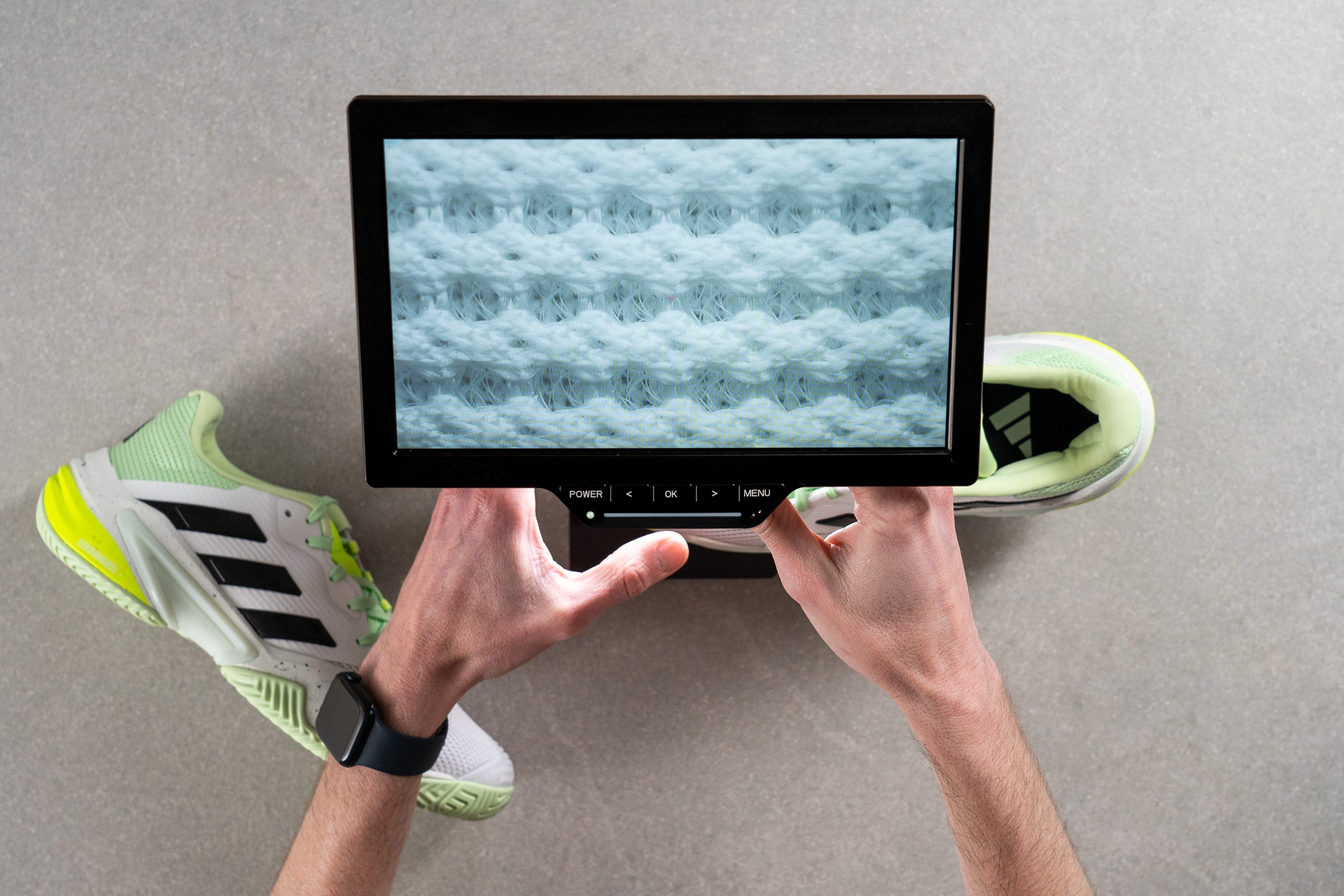
A closer look through our microscope revealed that the large pores hide very densely woven threads underneath. Even though this setup makes the toeboxes slightly more durable, it detracts a lot from ventilation.
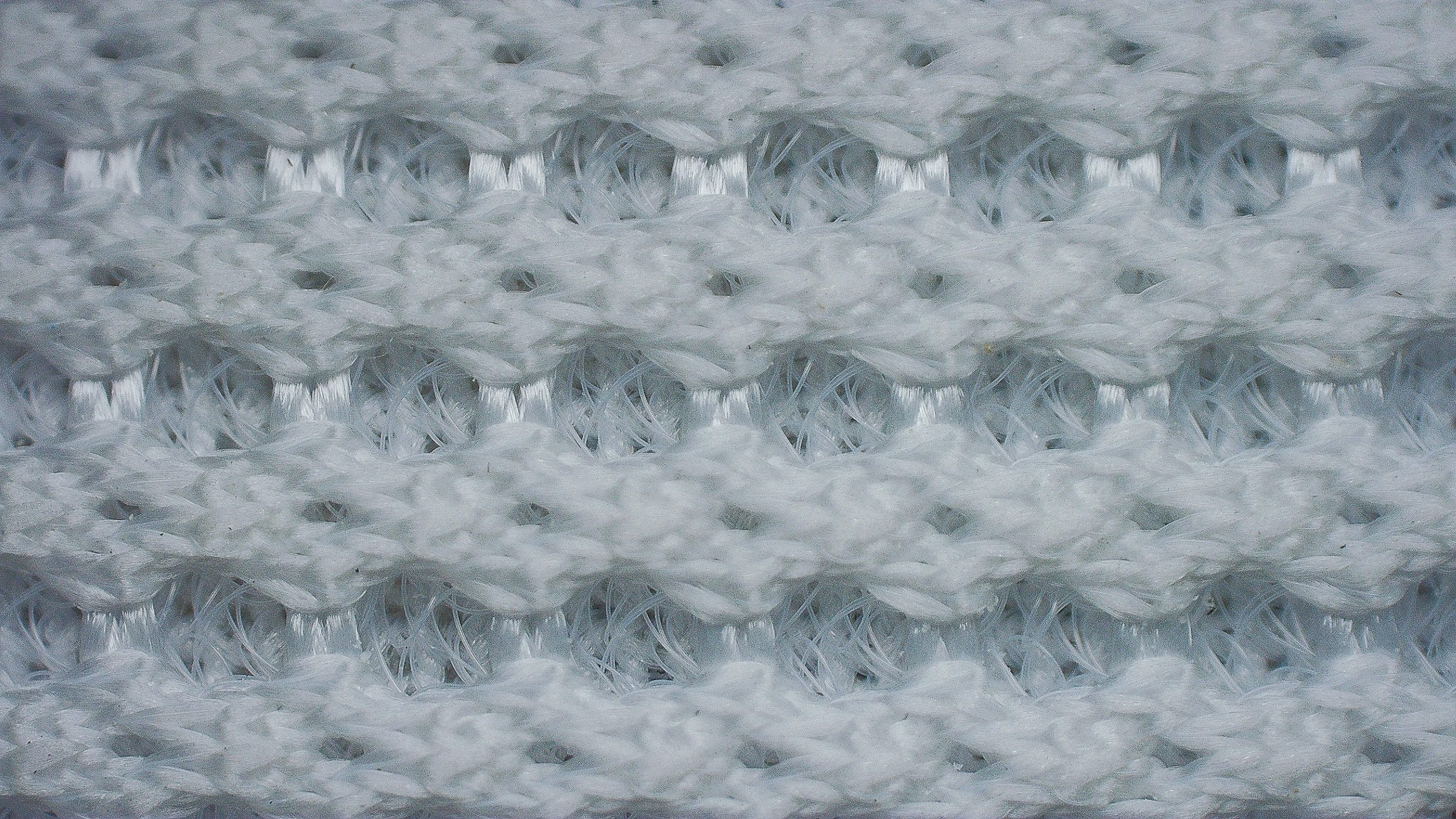
| Barricade 13 | 2 |
| Average | 3.1 |
Stability
Lateral stability test
Stability is where the Barricade 13 undercuts many other tennis shoes. It is THE reason to get this model actually!
As the name "Barricade" implies, the shoe made it feel as though there was an actual barrier on both sides of the foot. These barriers never allowed our feet or ankles to move uncontrollably or roll over the edge.
Torsional rigidity
The primary component that makes the Barricade 13 so stable is of course the Torsion System.
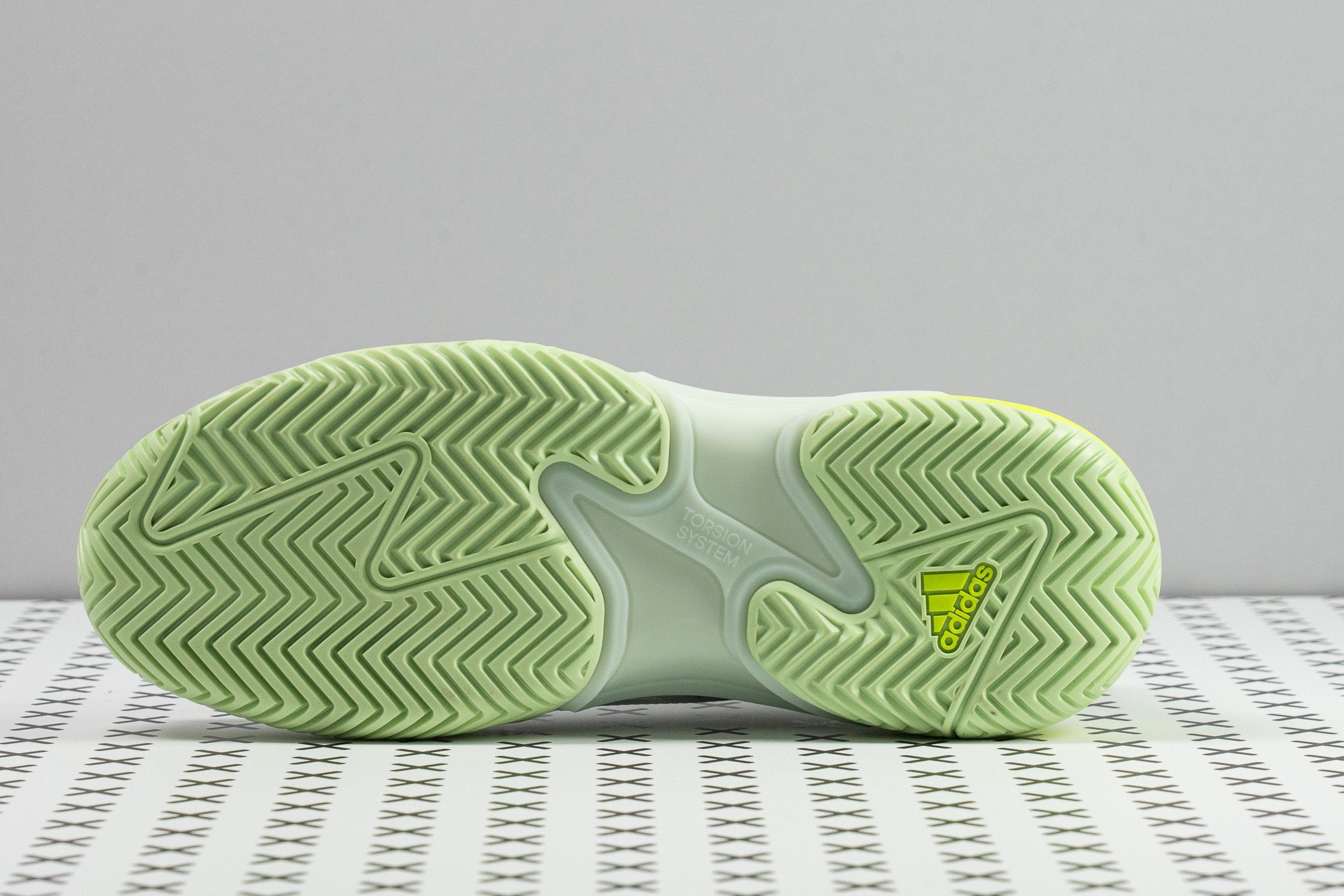
This stiff TPU element wraps around the shoe's midfoot area. It also extends upwards on the sides to create a cradle for the arch.
It was nearly impossible to twist this Adidas shoe in our manual test. On a 1-5 scale, where 5 is the absolute stiffest, we rated its torsional rigidity as 5.
We felt very well supported doing split steps, hard lateral stops, and quick changes of direction.
| Barricade 13 | 5 |
| Average | 4.5 |
Heel counter stiffness
The Barricade's very stiff and structured heel counter made us feel even more stable on the court.
Giving it a squeeze and push, we immediately felt the rigidness in this area. In addition to the Torsion System, it never let our rearfoot shift side-to-side. On a 1-5 stiffness scale, we gave it a maximum score!
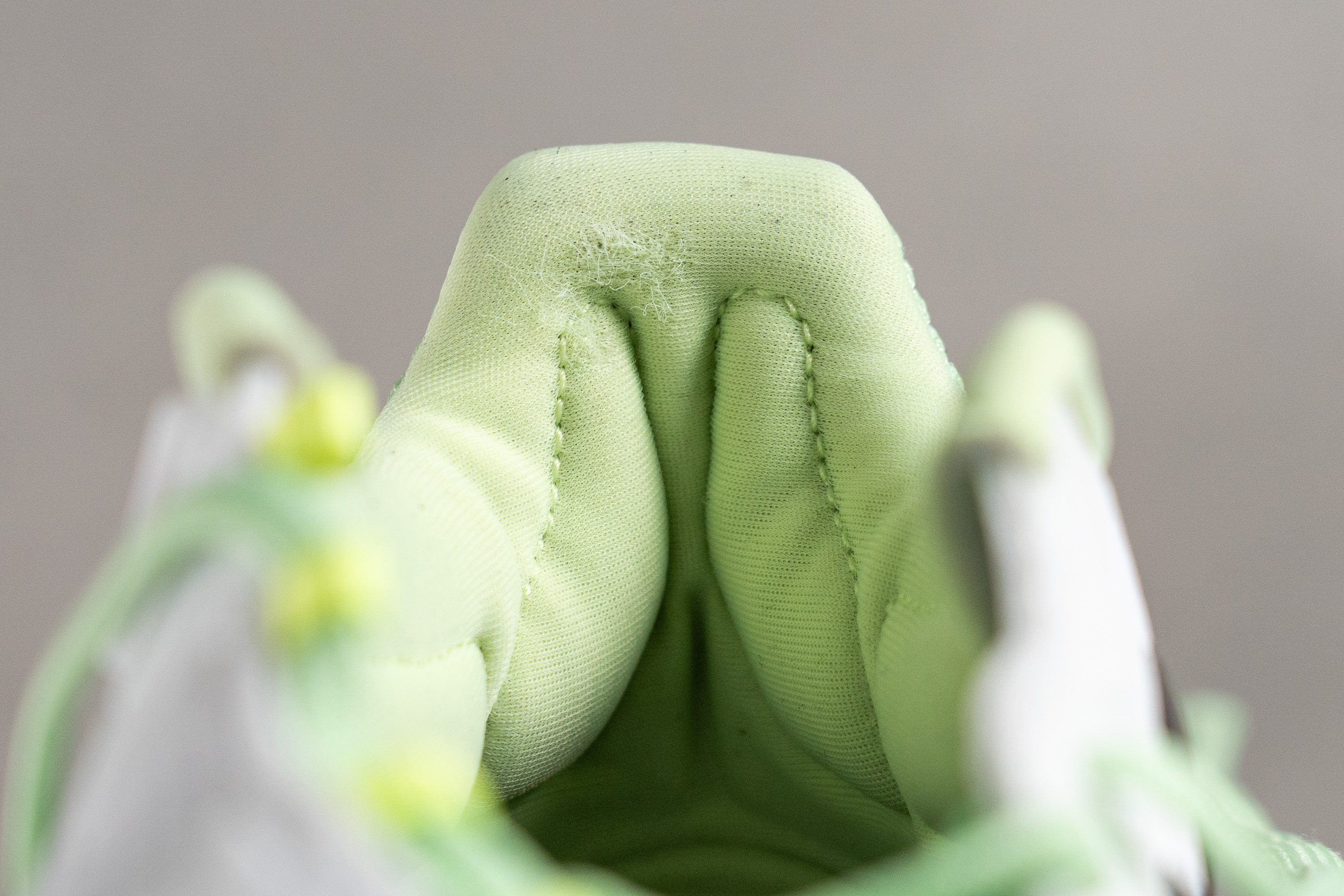
Not to mention the Geofit Sensepods inside the heel counter! These small pillows are designed to meet the "dimples" of your ankles to lock them down and prevent heel slippage.
| Barricade 13 | 5 |
| Average | 4.1 |
Midsole width - forefoot
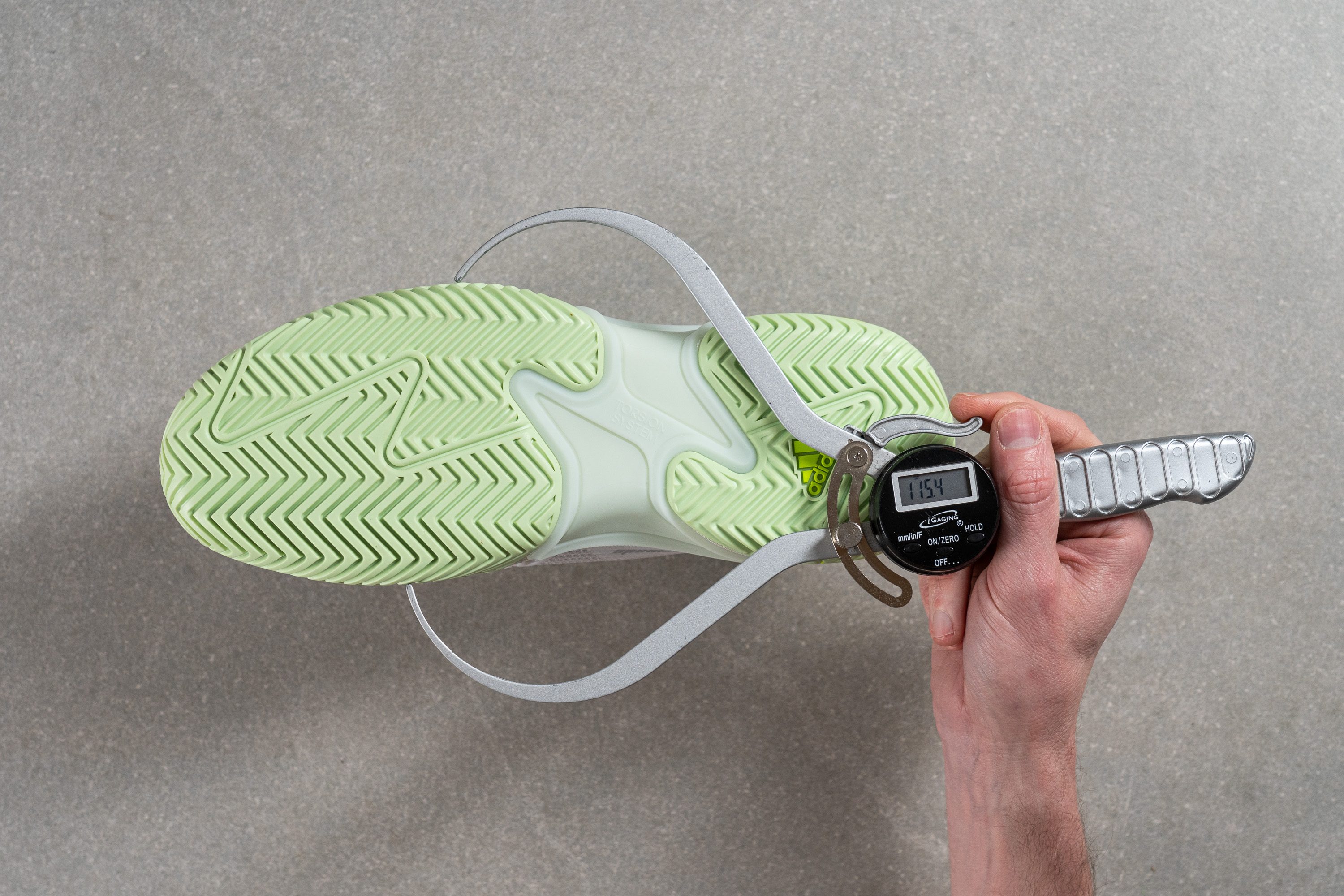
Its platform width makes the Barricade 13 some of the widest tennis shoes on the market.
In the widest part of the forefoot, our calliper measured 115.4 mm which is a few millimetres wider than average.
Such a wide base certainly contributed to our surefootedness and stability, especially during side-to-side movements.
| Barricade 13 | 115.4 mm |
| Average | 111.9 mm |
Midsole width - heel
The shoe also boasts a notably wider-than-average midsole in the heel. With 95.3 mm in the widest part, we found that it is wider than all the other stability-oriented tennis shoes.
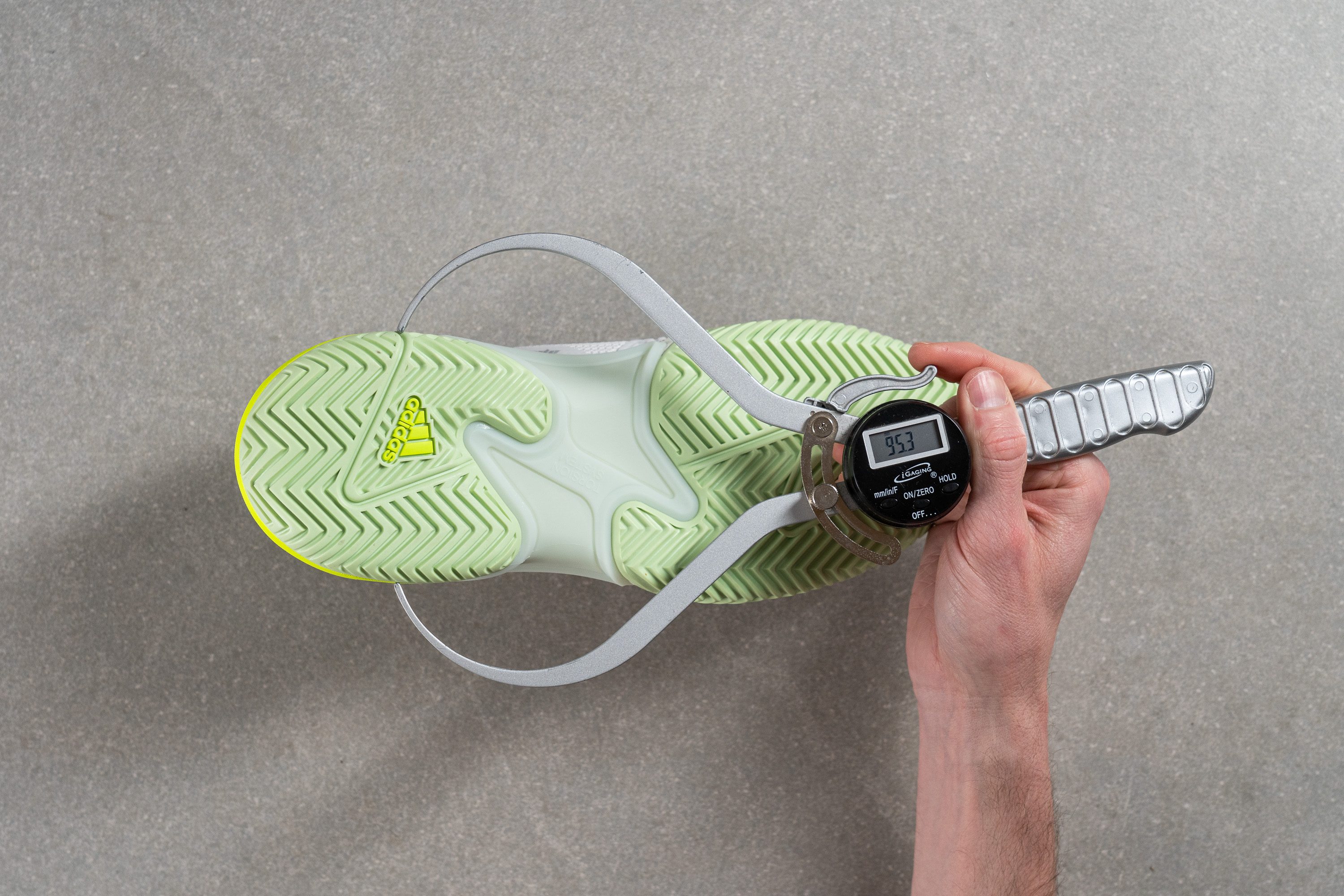
| Barricade 13 | 95.3 mm |
| Average | 89.5 mm |
Durability
Toebox durability
The Adidas Barricade 13 features a thick and aggressively treaded toe guard on the medial side. No matter how intensely we slashed it against the court, this rubber piece remained unscathed.
It seemed as though the Adituff Recycled rubber in this area was just as sturdy as the Adiwear on the outsole!
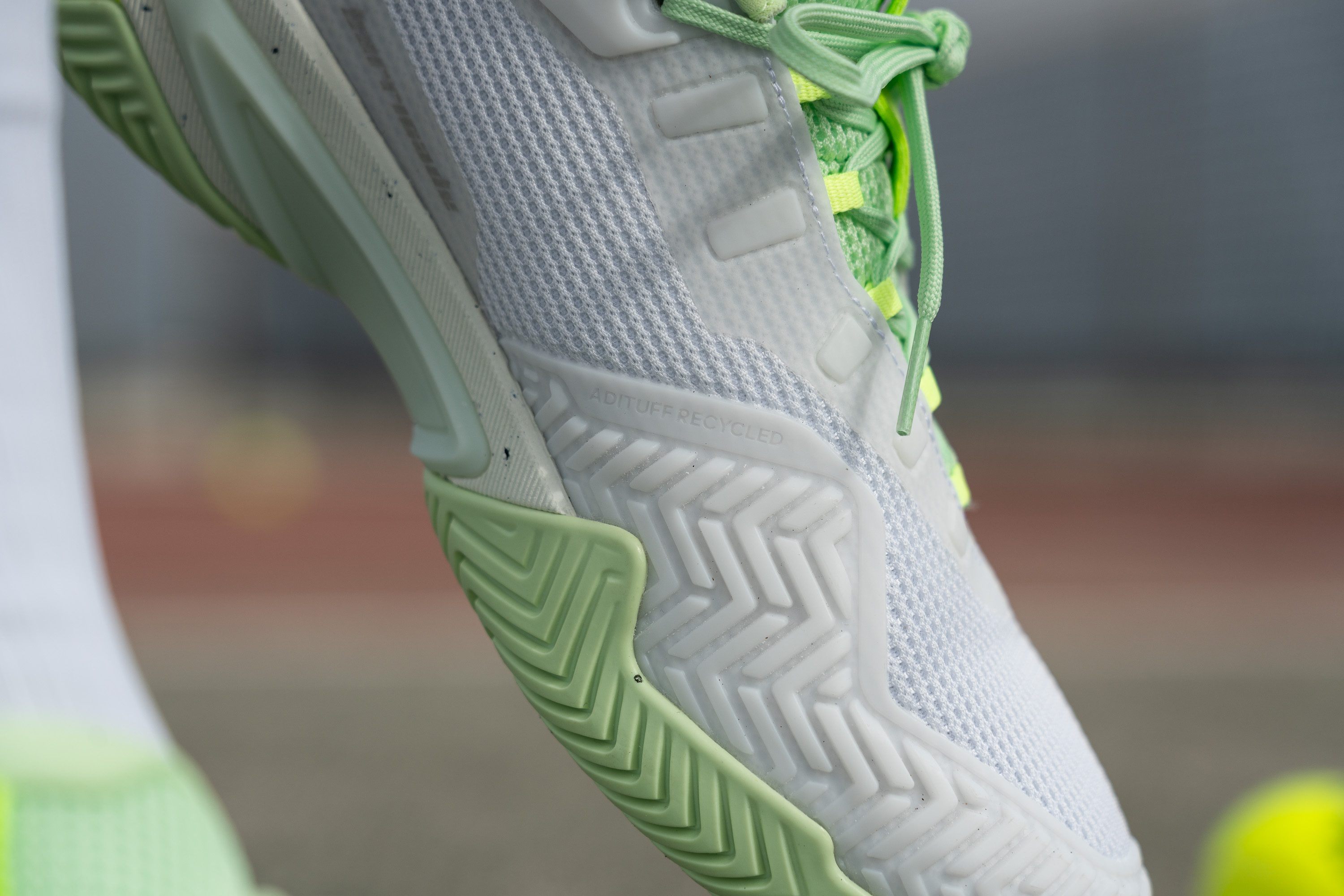
Unfortunately, the same cannot be said about the non-protected mesh parts of the upper.
Equipped with a Dremel with a sandpaper tip, we went full force on the fabric, mimicking the abrasion caused by a foot drag. We held the tool against the mesh for 12 seconds at a 5K RPM speed and 3.2N pressure.
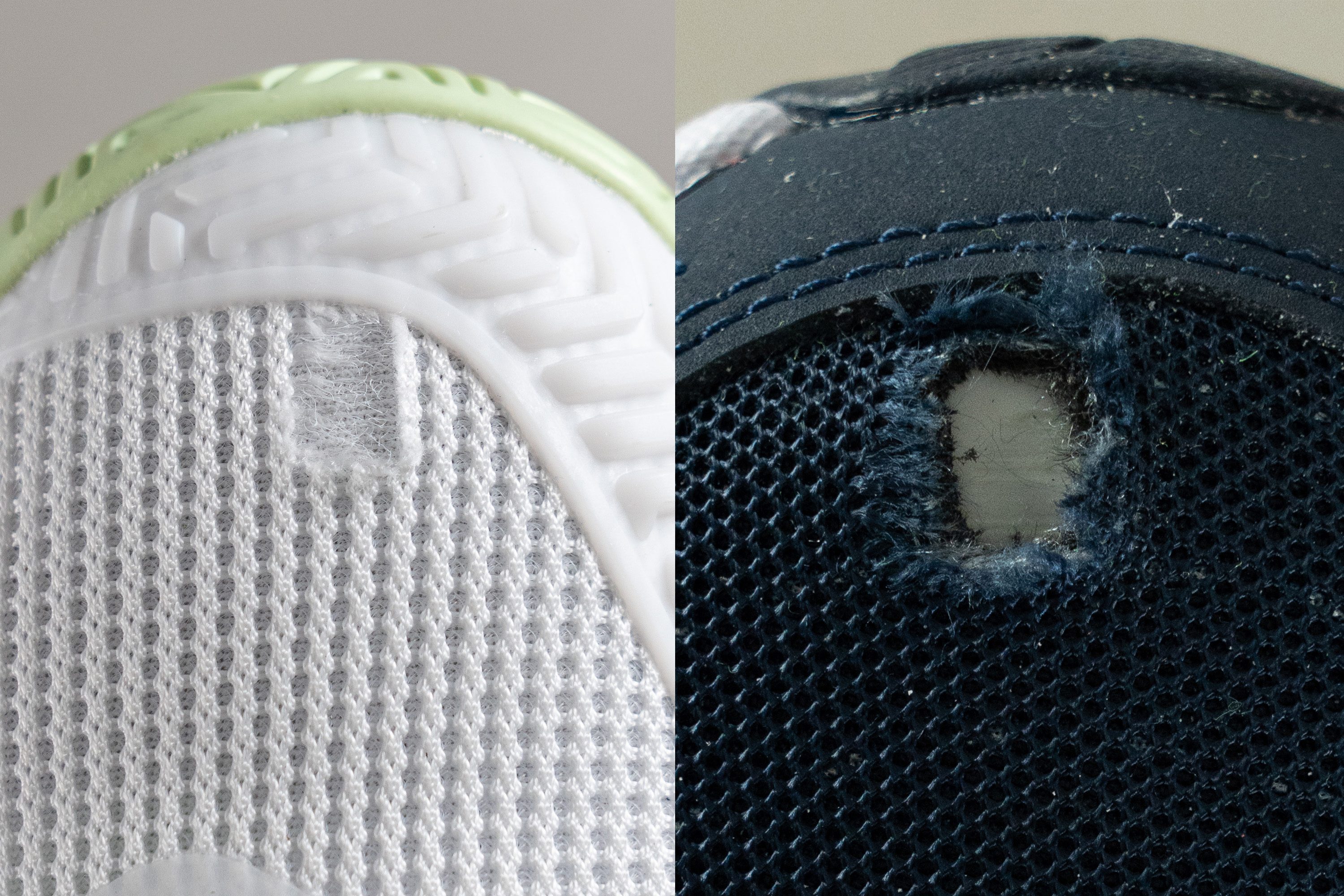
As you can see, the Adidas Barricade 13 (on the left) didn't get as shredded as some other tennis shoes (on the right). However, it was still far from the wear resistance of its close competitor, the ASICS Gel Resolution 9.
We rated the Adidas shoe's toebox durability with a moderate 3 out of 5, whereas the Resolution got a solid 5.
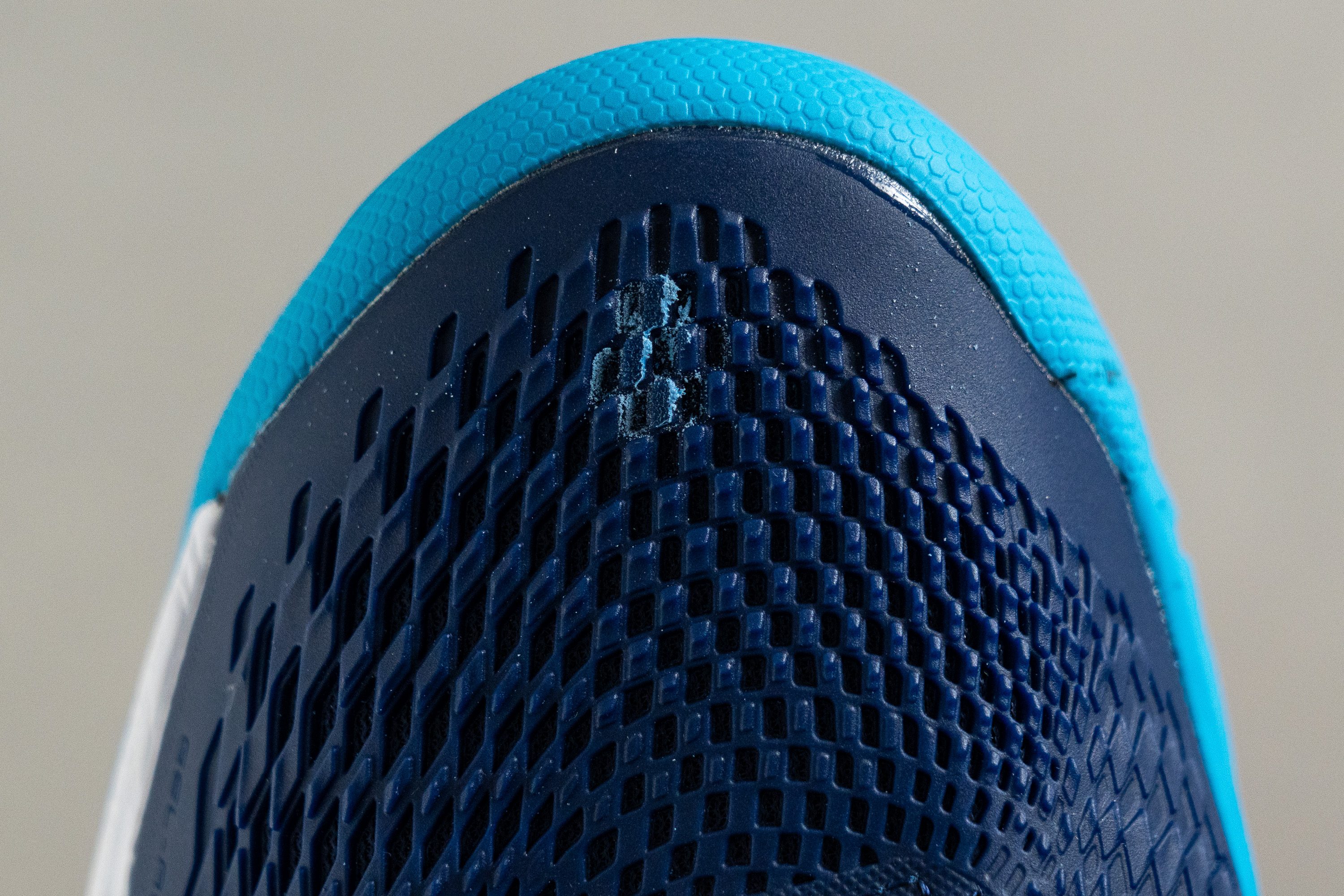
| Barricade 13 | 3 |
| Average | 3.7 |
Heel padding durability
Another sensitive area that often fails first in tennis shoes is the inner side of the heel counter. The Dremel test allows us to check how well the heel lining and padding hold up to friction.
After 4 seconds of drilling at 5K RPM speed and 3.2N pressure, we are happy to report that the Barricade 13 has very promising heel padding durability! Especially compared to cheaper models.
It is a solid 4 out of 5 from us!
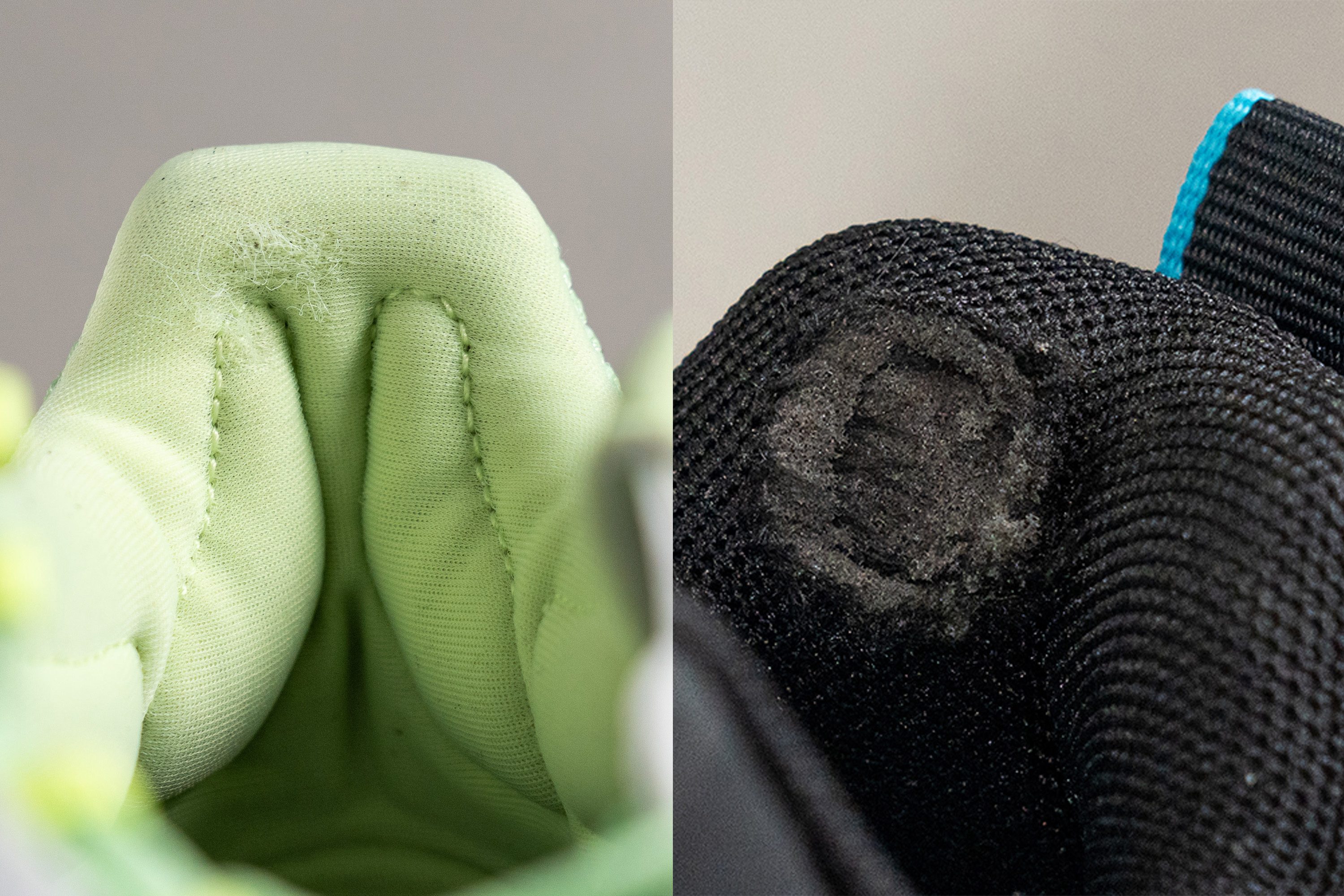
| Barricade 13 | 4 |
| Average | 3.3 |
Outsole hardness
Of course, the Barricade 13 had to use Adidas' most reputable rubber for the outsole - it's the Adiwear!
First of all, it is an exceptionally firm compound that showed 87.5 HC on our durometer measurement. And in most case, firmness is an indication of durability.
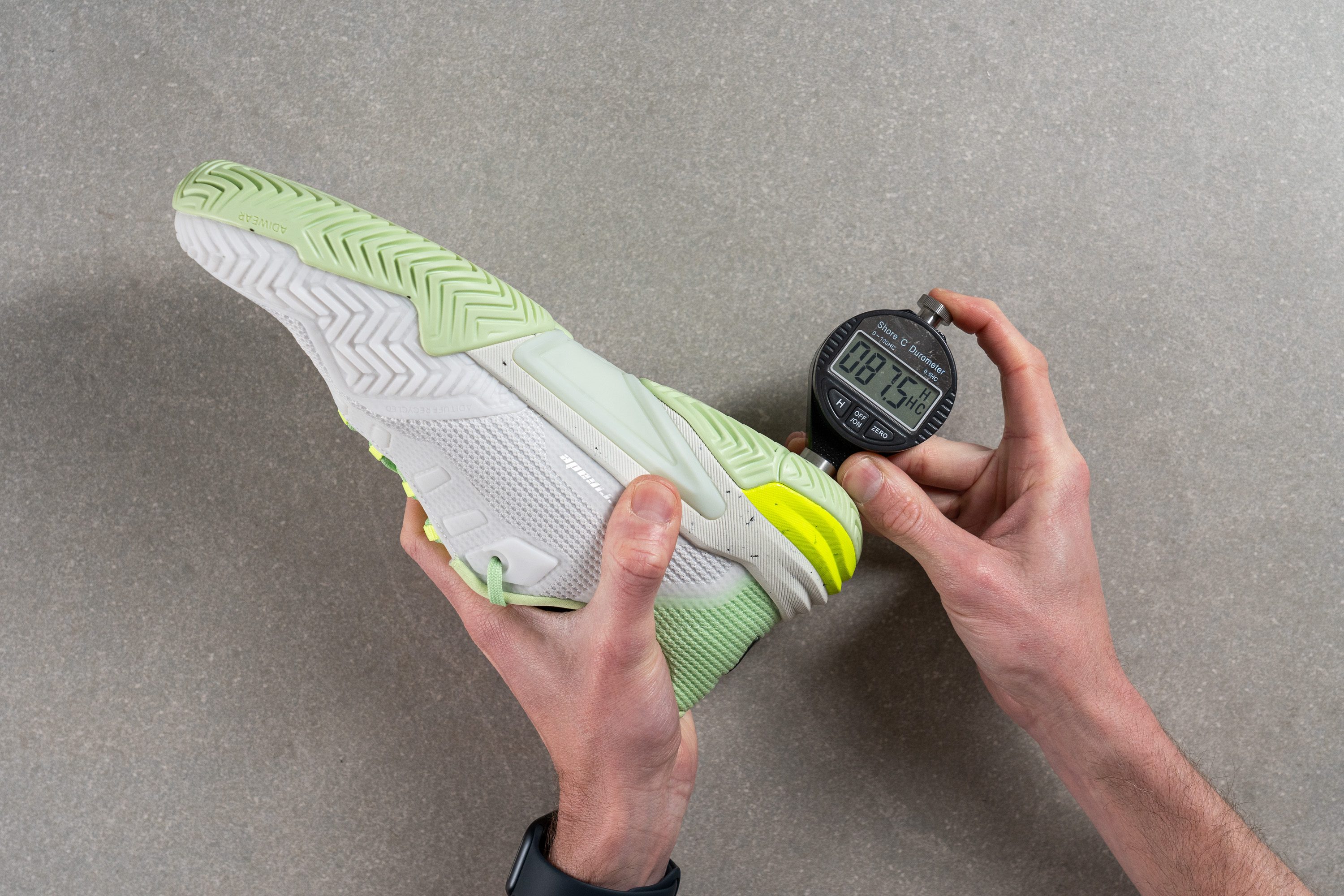
| Barricade 13 | 87.5 HC |
| Average | 86.0 HC |
Outsole durability
Just like we expected, the Adiwear stood up to the Dremel test with flying colours!
Even 22 seconds of drilling at the high speed of 10K RPM failed to cause more than a millimetre of damage to the shoe's outsole!
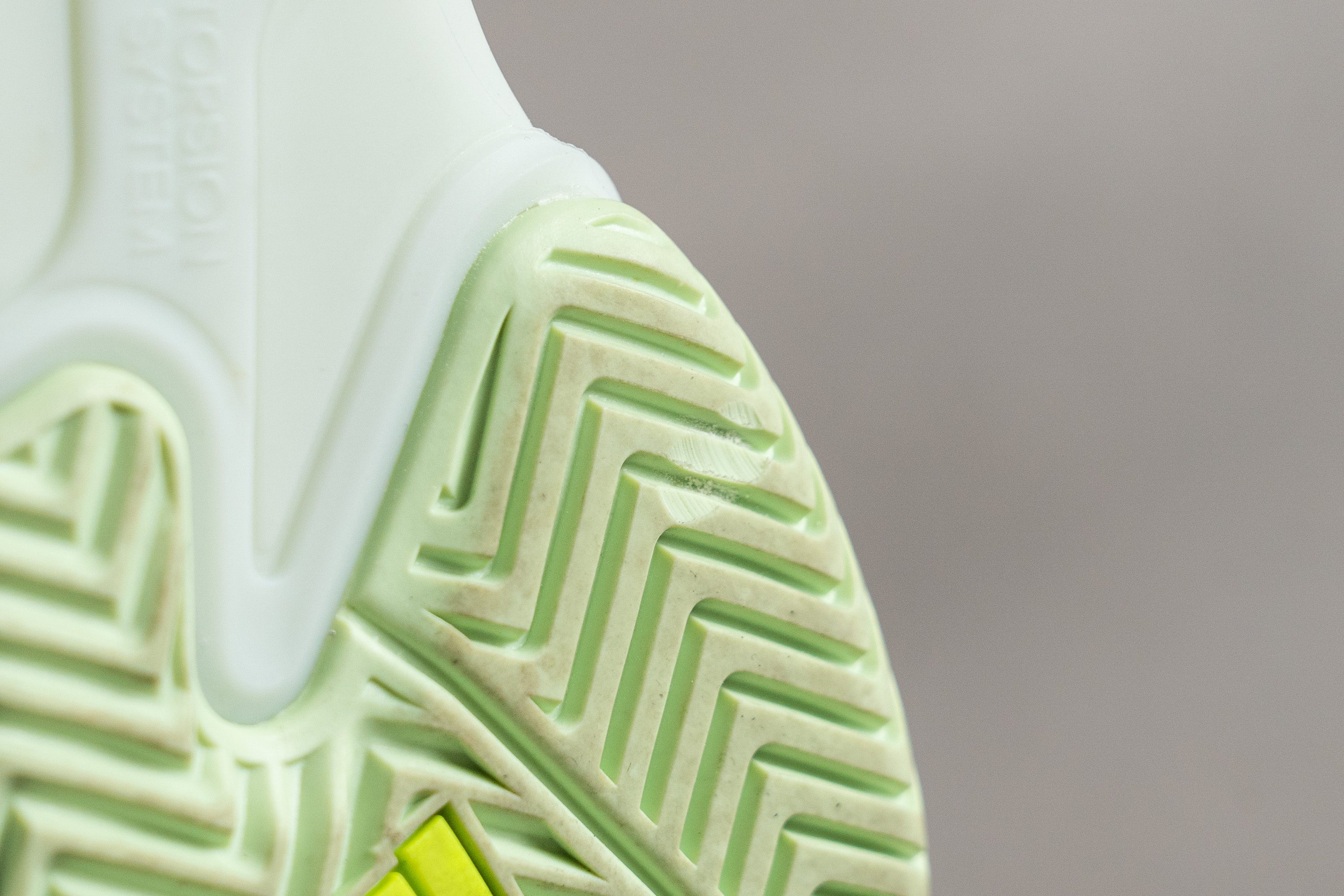
| Barricade 13 | 0.9 mm |
| Average | 0.7 mm |
Outsole thickness
The only thing we found concerning about the Barricade's outsole was its thickness. Showing only 3.0 mm on our calliper, it is significantly thinner than average.
Luckily, this Adidas shoe comes with a 6-month outsole durability guarantee. It can be exchanged for a new pair if the rubber shows significant wear within that period.
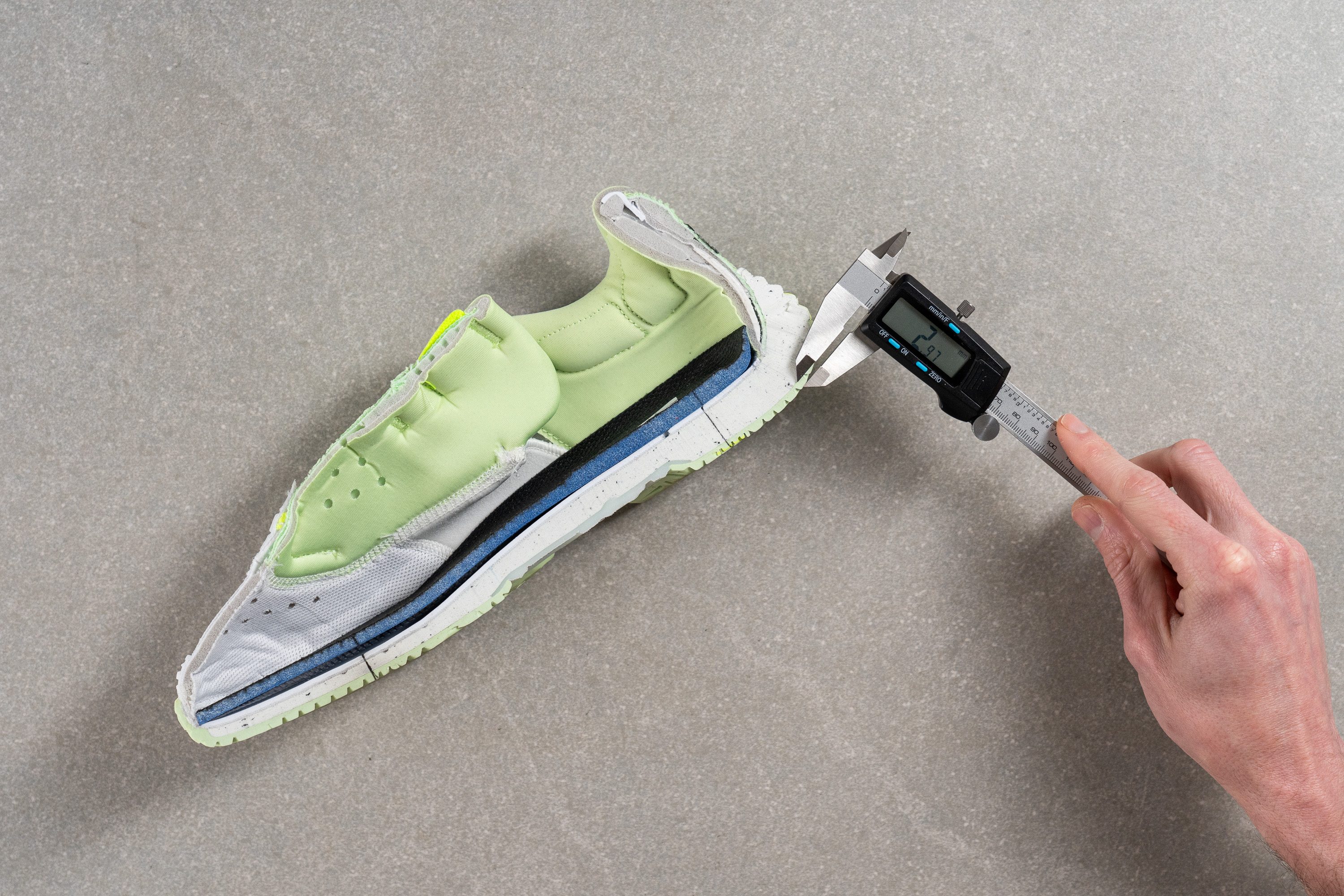
| Barricade 13 | 3.0 mm |
| Average | 4.2 mm |
Misc
Insole thickness
A well-padded insole turned out to be a cherry on top of the shoe's cushioning. With a calliper measurement of 7.5 mm, it happens to be thicker than the average tennis shoe insole.
We could feel the difference it makes for the in-shoe comfort.
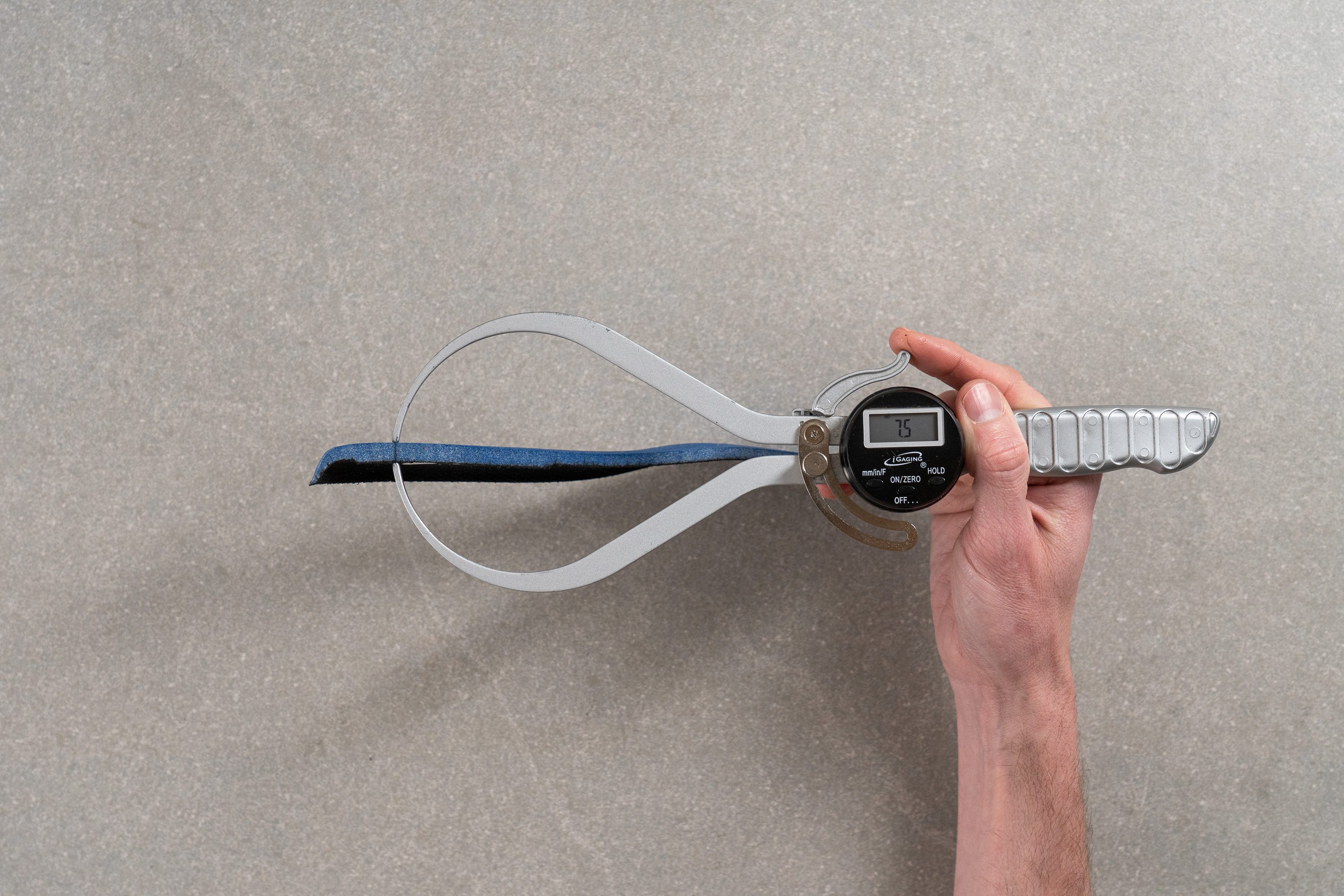
| Barricade 13 | 7.5 mm |
| Average | 5.1 mm |
Removable insole
If you do need a custom insert to feel comfortable and perform your best on the court, you can easily use one with the Barricade 13. Its stock insole is removable.
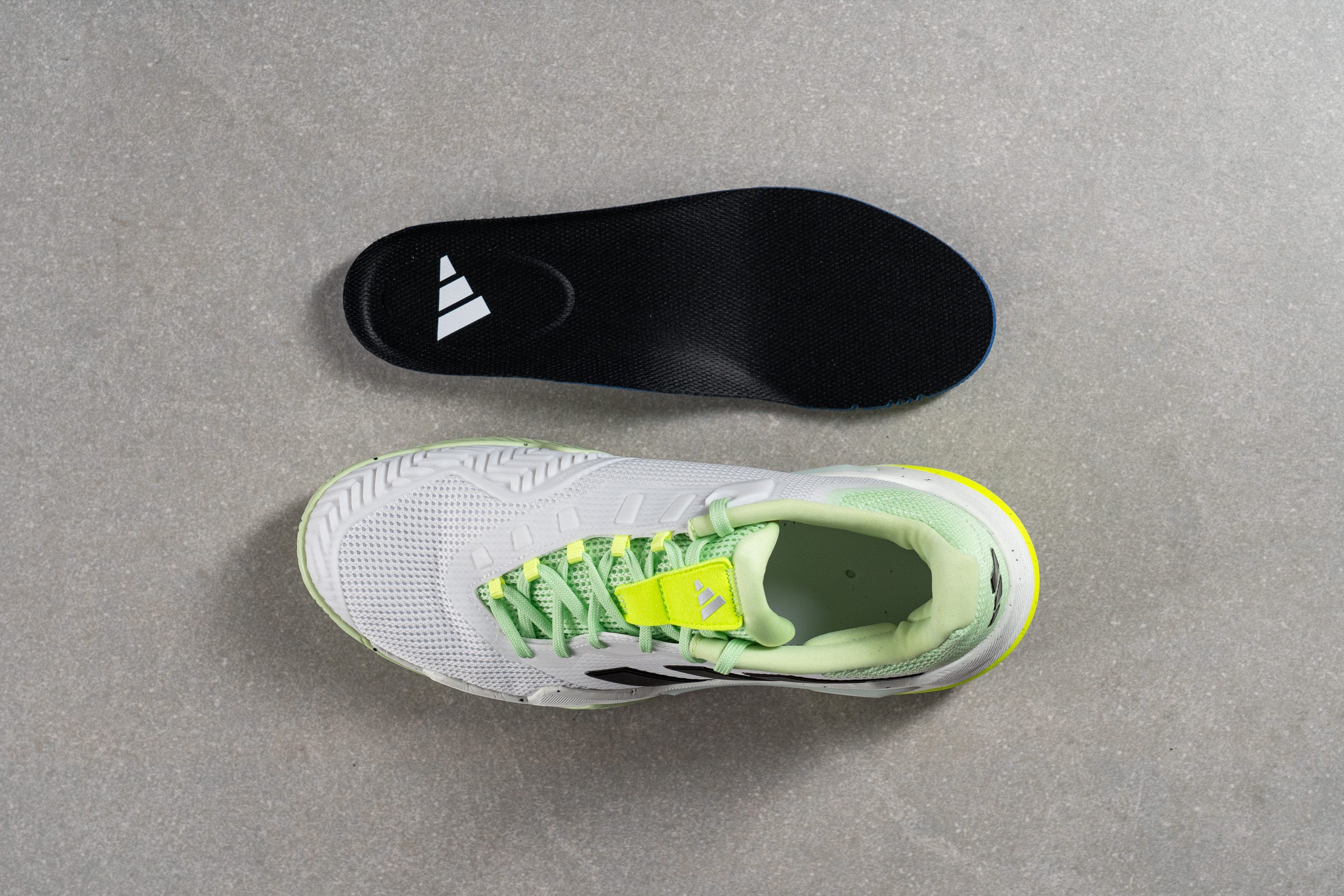
| Barricade 13 | Yes |
Tongue padding
No need to worry about lace bites or pressure on top of the foot. This Adidas shoe comes with a sufficiently padded tongue that successfully eliminates such discomfort.
Our calliper shows that the shoe's tongue is 7.1 mm thick which is on par with the average measurement.
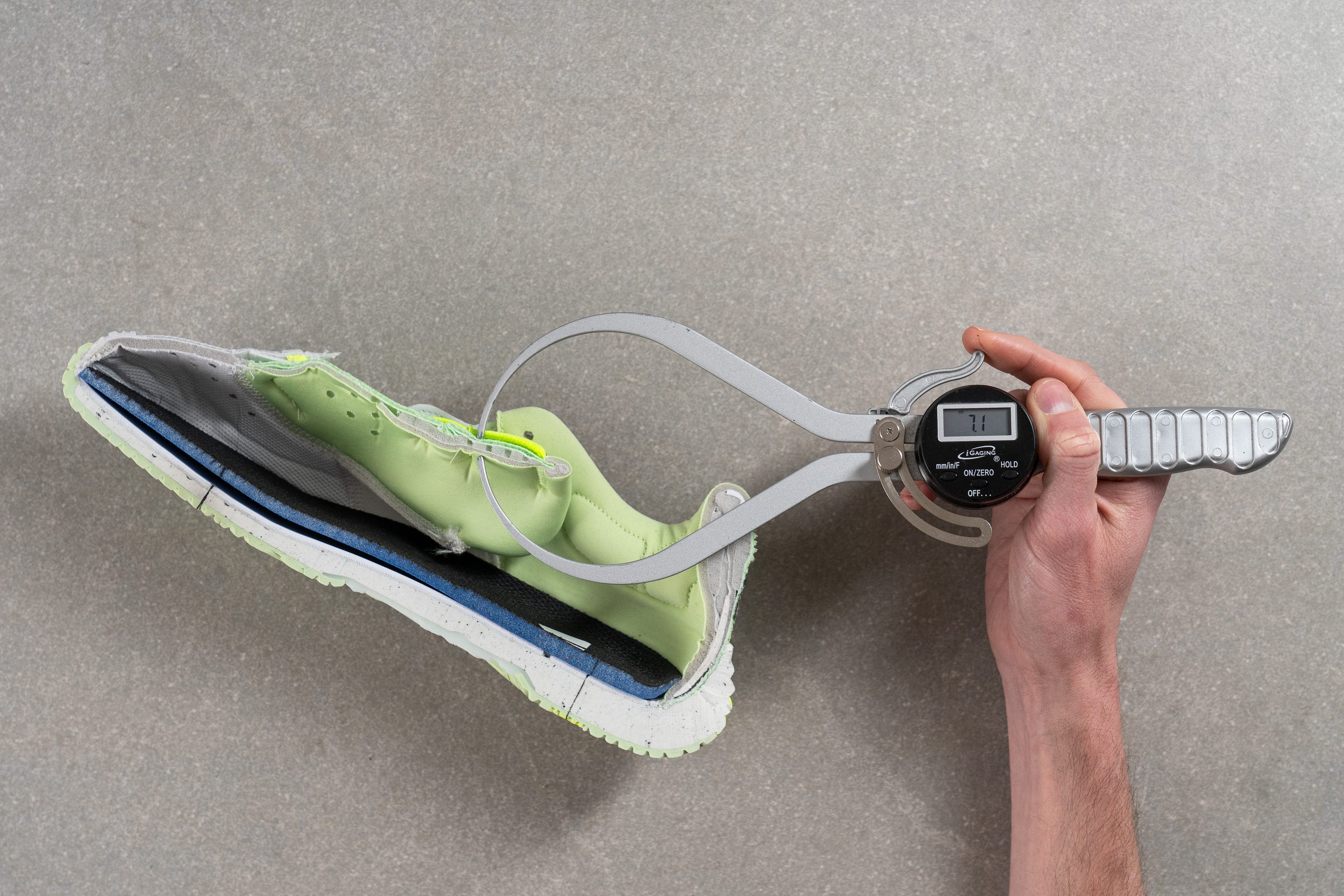
| Barricade 13 | 7.1 mm |
| Average | 8.2 mm |
Tongue: gusset type
The Barricade 13 features an elastic gusset that connects the tongue all the way down to the sole.
We always welcome a gusseted tongue in tennis shoes as it enhances the lockdown and makes us feel mush more secure inside the shoe during dynamic movements.
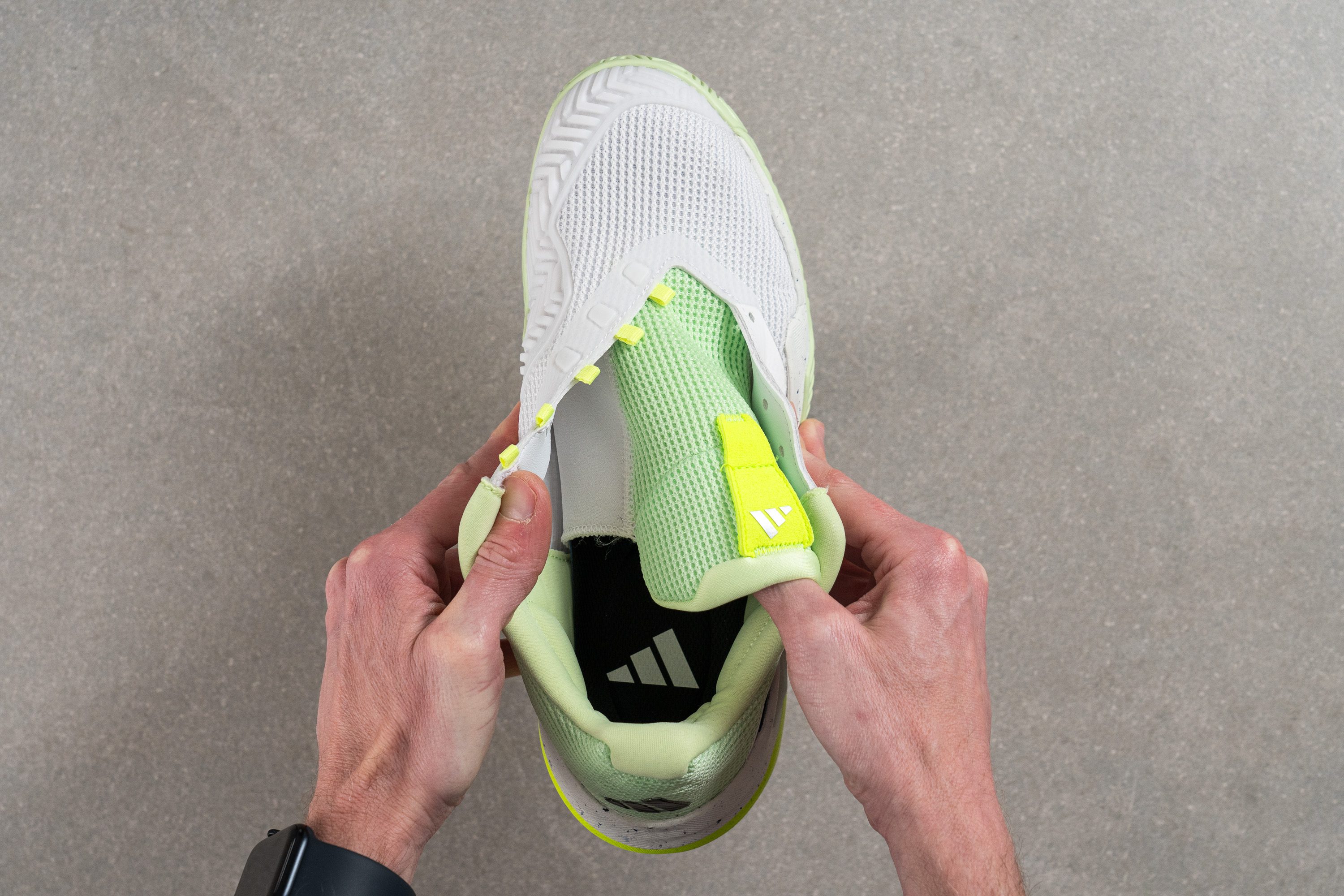
| Barricade 13 | Both sides (full) |
Heel tab
Unlike the shoe's 2023 edition, the Barricade 2024 doesn't have a pull tab at the back. Instead, its heel collar is extended upwards allowing you to grab it when pulling the shoe on.
The downside to that is that we experienced some chafing of our Achilles during the first few sessions. We recommend wearing taller socks to avoid this discomfort.
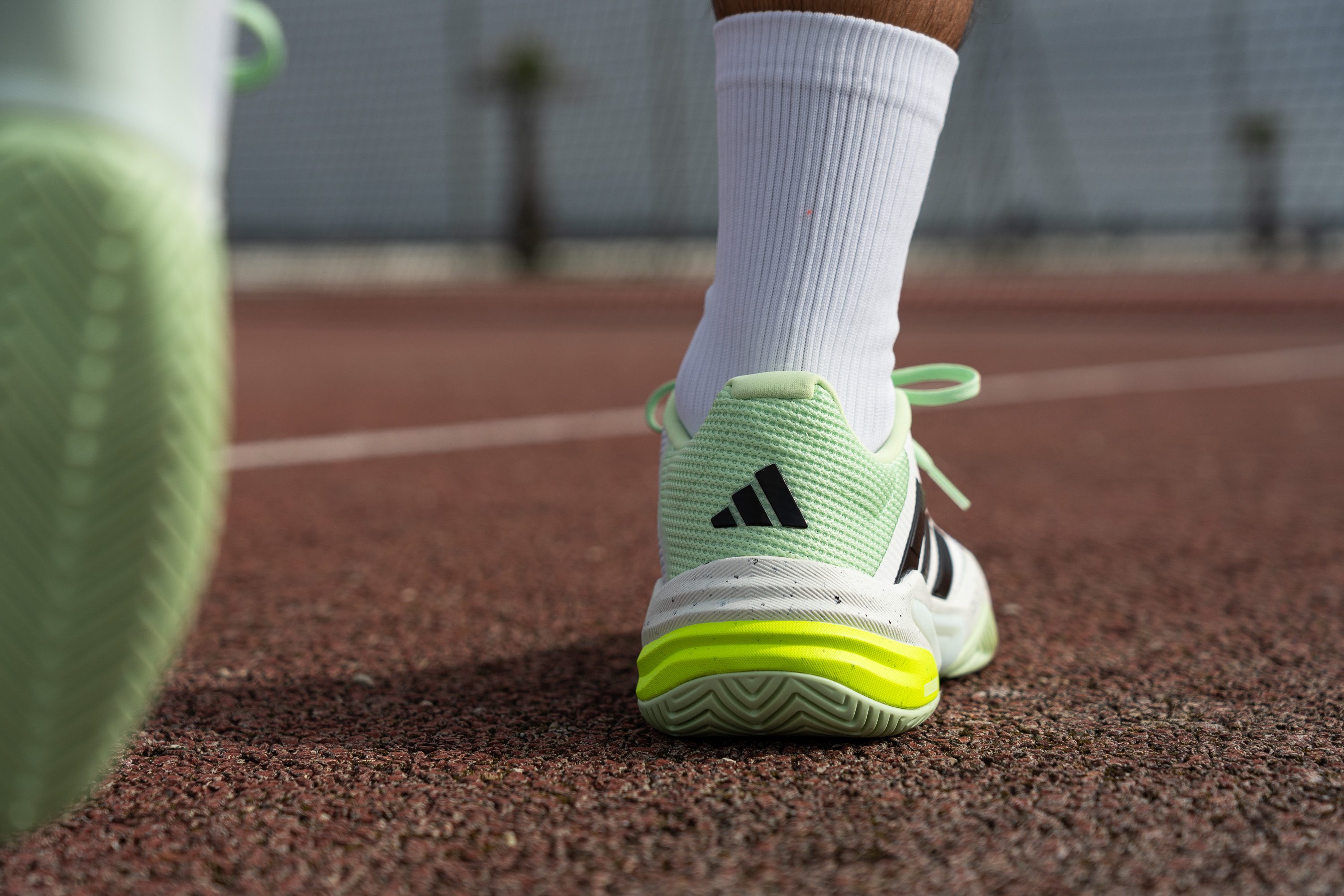
| Barricade 13 | Extended heel collar |
Sustainability
According to Adidas, this Barricade shoe features at least 20% recycled materials. We assume that such material is used for the Adituff Recycled toe guard (based on the name).

